

200 Biology Research Topics For High School
Research papers are an integral part of high school. A detailed research paper is required in most of the subjects, and one just cannot back out, as this is a part of their curriculum. However, what is even more laborious than writing the whole research paper? Finding a good topic!
The same goes for biology. Although there are plenty of topics out there that a student can write about, choosing a relevant topic is often a taxing job since they may need to brainstorm various factors. However, it can be disentangled with clarity and appropriate counsel.
While this subject deals with various areas like cells, animals, plants, and human anatomy; in this post, we would appraise you with 200 biology research topics handpicked for aspiring high schoolers, to make their task easier.
Biology Research Topics- Finding the Right one
Choosing the right topic can be a long expedition. However, it can be effortless when students are clear about their requirements personally and academically. To discern the same, it can be a fair idea to look into some crucial attributes that can lead a high schooler towards a desired biology research topic.
- Know your niche
Learners often have one or more notions that they feel enticing to learn and travel with. For instance, a student may like to learn and work in cell biology, while another may love studying more about genetics. Knowing the niche in which they can excel can make their topic selection facile.
- Stick to one Narrow topic
After comprehending the choice of the niche, the scholar may need to narrow down to one topic which is intriguing and manageable at the same time. Evidently, “Study of Mitochondria and its benefits ” is a better choice than “Cell biology”. Choosing a righteous narrow topic may mitigate the constraints like taxing research and report length later.
- Consult mentors and Peers
Instructors are always available to answer the queries of pupils. Students can take their inputs to add strength to their research topics. Mentors not only assist to choose the right topic but also can advise a few changes in the choice to make it finer. Say, a student has chosen “Study of DNA”, the mentor can suggest modifying it to ”Role of DNA in Curing Diseases”. Brainstorming sessions with peers may also ameliorate the topic decision
- Ensure the School Regulations
High school research is often guided by some crucial regulations to stipulate students work efficiently. Students may need to choose a topic somehow related to the academic syllabus. Further, they may be stimulated to address burning issues to create awareness. Adhering to the guidelines can mitigate the need for rectifications later.
200 Biology Research Topics- To Start With Right Away
High School biology has several sections to choose from, which may make it taxing for students to resolute on one choice. Here is a sizable list of 201 biology research topics for high schoolers which they can start instantly:
Cell Biology
- Animal cell and its structure
- Functions of Cells
- Mitochondria- the PowerHouse of cell
- Functions of an RBC- How does it transfer Oxygen?
- Functions of a WBC- How does it retain immunity?
- Components of Plant Cell
- Plant Cell Vs. Animal Cell
- Cell Division
- Mitosis Vs. Meiosis
- Bacteria- How is it different from cells?
- Cell structure and antibiotic Resistance
- What are cancer cells? Are they Dangerous?
- Mushrooms and Molds- A brief Study of Fungi
- Curing Cancer Cells
- Stem Cells- A brief Study
- Embryonic vs Induced Pluripotent Stem Cells
- Adults vs Induced Pluripotent stem Cells
- The Build of Human DNA
- Components of DNA
- Chromosomes- A brief Study
- Double Helix Structure of DNA
- Singled celled Organisms and their DNA
- Bacteria and its DNA
- X and Y chromosomes
- Genetic INformation in DNA
- DNA modification- Its application in medicine
- Cancer and DNA modification
- DNA of dinosaurs
- Do plants have DNA?
Molecular Biology
- Gene- A Brief History
- Components of Gene
- Drugs for Humans
- Vaccine vs Drugs
- A brief study of Gregor Mendel
- Dominant vs recessive genes
- Widow’s peak illustration of Genes
- What is mutation?
- Hormones and their functions
- Artificial hormones for animals
- PCR tests for analyzing DNA
- Structure of a Molecule
- Structure of prion
- DNA transcription-Its applications
- Central Dogma
- Heredity and traits
NeuroBiology
- Human Nervous System- A brief description
- Structure and components of neurons.
- Neurons vs Animal cell
- A brief study of electric pulses in the human brain
- Altering reaction speed in the brain
- Alzheimer’s disease- its study in genetics
- Neurobiological Degeneration- does it have a cure?
- Brain injuries and cures
- Spinal Cord Injuries and cures
- Narcolepsy
- A brief study of mental health with neurobiology
- Various emotions and their neural pulses
- A brief study of the human neurological system
Genetics
- A brief study of ancient cloning techniques
- Reasons behind Abortion. Is it ethical
- Procedure of abortion
- What is human cloning?
- Side effects of Human Cloning
- Goals of Human Cloning
- Transplantation vs Human Cloning
- Perfect child theory. Is it ethical?
- Gene cloning- Removal of undesirable traits.
- Genes and ethics
- Gene therapy
- Gene therapy vs Cloning
- Curing Cancer with Gene therapy
- Cons of Cloning
Environment and Ecology
- A Brief Study of Charles Darwin
- The Evolution Theory
- Natural Selection- the complete study
- Mutation- A brief study with examples
- Adaptations in animals- Study with 5 examples
- Divergent evolution
- Convergent evolution
- Parallel Evolution
- Components of a sustainable environment
- Environmental Friendly Practices
- Role of Plastics in pollution
- Alternatives for Plastic
- Deforestation
- Solutions for Deforestations
- Ecological concerns
- History of the Ozone layer
- Change in ecology- A study of extinct animals
- Effects of Fast Food factories
- Reversing ecological changes
- Climate changes and their effects
- Global Warming
- GreenHouse effect
Plants And Animals
- A study of Endangered animals
- Melatonin therapy
- Benefits of growing plants in the home
- A brief study of popular plant diseases
- Effects of pesticides and herbicides
- Immunity in plants
- The Banana Pandemic
- Weedy and Invasive Plants
- Genetic analysis of plants
- Medicinal plants- A brief study
- Evolution in plants
- Plants in Food production
- Components of Photosynthesis
- A brief study of Phytohormones
- Antibiotics and phytocides
- A detailed study of Stomata structure
- Grafting techniques
- Roots and stem modification
- Real-life examples of taxonomy
- Study of sweet potato Virus
- Classifications of animals
- Evolution of marine life
- Prehistoric aquatic life- study of enormous creatures
- Evolution of land-based life
- Zoos and petting- are they ethical?
- Drug testing on animals
- A brief study of cows and their benefits on Humans
- Food chain and classification
- Vegans vs carnivores
- Resistance in animals
- Behavioral changes in animals due to evolution
- A brief study of intelligence in animals
- Migration of birds- a brief study.
- Study of extinct species and bringing back them
- Types of dinosaurs
- Male pregnancy in animals
Marine Biology
- Oil spilling in the ocean- strategies to mitigate
- Ocean Acidification and its effects
- Evolution in aquatic animals
- Camouflage mechanism
- Petting marine species
- Study on Ultrasonic communication in whales
- Role of marine shows and debate on its ethics
- Are mermaids real?
- A study of immortal marine species
- Plankton and its medicinal uses
- Underwater ecologies
- Freshwater And Seawater
- A brief study of coral reefs
- Medicinal values of coral reef plants
- Tectonic plates and underwater earthquakes
Cardiovascular
- Heart Rhythm and Arrhythmias
- Preventive Cardiology
- Hypertension
- InterventionalCardiology
- Heart Failure (Myocardial Biology)
- Heart Disease in various age groups
- Signs, symptoms and first aid for Heart Disease.
- A study of ECG and other apparatus
Hormone Biology
- Pregnancy and hormonal changes
- Bipolar Disorder
- Endocrine and related diseases
- MEntal health in different genders.
- Stress and immunity
Reproductive System
- Cervical Cancer and its cure
- A brief study of puberty
- Contraception
- Infertility
- Test tube babies
- The concept of surrogacy
- Tubectomy and vasectomy
- Male Reproductive complications and their cures
- Female reproductive complications and their cure
Digestive System
- Gastrointestinal tract- a brief study
- Components of Digestive systems
- A brief study of stomach and liver
- Functions of intestines
Skeletal System
- The function of the skeletal system
- Type of bones
- Functions of Sesamoid bones
- Foods for healthy bones
- A brief study of Spinal Cord
Excretory System
- The detailed study on Kidney and its Function
- Gross Anatomy of the Urinary System
- Reasons for Renal Calculi (Kidney Stones) and cures
Miscellaneous
- Coordination between muscular system and skeletal system
- Benefits of ecotourism
- Extinction of bees- A brief study
- The green revolution
- US Grain economy
- Agricultural practices for more yield
- World trade of food
- A brief study of Covid 19
- Renewable energies and their effect on plants
- Bacteria and depression
- Genes and neuron functions
- Robotic surgeries- the study of the future.
- Benefits of organic farming
- Study of various components of flower and a fruit
- Diet and obesity
- Various components of Brain
- Diabetes and its cure
- CRISPR and Genetic Engineering
- A brief on Cell tissue engineering
Having a large number of alternatives often creates incertitude. The topics we put forward are all worth considering. Determining your area of interest can make your choice facile. For instance, if you feel genetics enticing, prefer choosing relevant topics. You may consider consulting researchers, faculty and pertinent professionals to add muscle to your research. Review our picks to see if any of those can fit your choice in making a credible research paper.

Sananda Bhattacharya, Chief Editor of TheHighSchooler, is dedicated to enhancing operations and growth. With degrees in Literature and Asian Studies from Presidency University, Kolkata, she leverages her educational and innovative background to shape TheHighSchooler into a pivotal resource hub. Providing valuable insights, practical activities, and guidance on school life, graduation, scholarships, and more, Sananda’s leadership enriches the journey of high school students.
Explore a plethora of invaluable resources and insights tailored for high schoolers at TheHighSchooler, under the guidance of Sananda Bhattacharya’s expertise. You can follow her on Linkedin
Leave a Comment Cancel reply
Save my name, email, and website in this browser for the next time I comment.
Biology Research Projects for High School Students

Indigo Research Team

Are you looking for biology-related topics for your high school research project? If yes, then you have come to the right place.
We do understand that finding the right topic for research that connects with you can be challenging. This is particularly true for the field of biology since it is very diverse. A good biology project needs to have enough scientific research backing it so that it helps support or disprove your hypothesis.
This article is all about easy and interesting research projects designed just for keen high school students. We'll explore topics in the domain of the human body, ecosystems, diseases and their treatments, and more.
Biology Project Ideas For High Schoolers
Here's a carefully curated compilation of cool biology topics to inspire and kick-start your creativity. We have broken the list into categories so that it's easier for you to navigate projects that fall into your interest.
Human Body Project Ideas
The human body is said to be the most complicated biological machine, which opens room for good research topics . Let's check out some exciting project ideas about the human body.

1. Exploring the Rate of Cognitive Decline at Different Elevations
At higher altitudes, there's a reduction in oxygen partial pressure, impacting blood oxygenation and potentially influencing brain function. If you've ever experienced altitude sickness, you've felt the effects of this phenomenon. The decrease in atmospheric pressure at elevated altitudes results in lower partial pressures of gases, including vital oxygen necessary for our bodily functions.
This project can investigate the impact of sudden increased elevation, such as climbing Denali, on brain health and cognition. Additionally, you can also explore whether continuous exposure to high elevations might contribute to an increased risk of dementia. This biology research project can also analyze published studies examining the correlation between altitude and cognitive brain functions.
2. Making a Visual Guide for Blood Vessel Formation
Create an illustration using online images to showcase the process of blood vessel development. In this project, you can search existing research to understand the current knowledge about how blood vessels form and grow. Then, you can use this gathered information to design a graphic explaining how the network of blood vessels, known as vasculature, takes shape.
This is one of the most interesting human biology project ideas that aims to convey scientific concepts visually, making the information more accessible to a broader audience.
3. Exploring Bacterial Communities in Different Homes
If you’re looking for immune system project ideas, this might be it for you. Bacterial microbiomes are groups of bacteria living on or around living things. These communities of tiny cells are essential for our health, helping with digestion and keeping our immune system in check. The microorganisms in our body outnumber our own cells by approximately 10:1. This project mainly focuses on figuring out how the bacteria on our skin differ between people from different households. To execute this biology project, you can create various bacterial media at home and select other microorganisms.
Note: While conducting research, avoid abrasions, needle sticks, or cuts to avoid getting bacterial infections. Wearing safety goggles, a face mask, or a face shield can help keep you safe. It is also important after the experiments to wash your hands with soap and water and disinfect surfaces that may have been in contact with the bacteria. At the end of your experiment, fully sterilize everything before disposal.
4. Understanding the Control of Biological Clocks
Next up in the human biology project ideas is understanding how biological clocks work. Sleep is managed by two main processes: the circadian clock, which aligns sleep patterns with the day-night cycle, and sleep homeostasis, which tracks sleep debt as a way to recover from sleep loss.
You've probably heard about the circadian rhythm, our body's internal clock. Circadian sleep regulation is crucial for animals to predict when they should be awake or sleepy each day. These processes can be controlled at different levels, such as genes, proteins, and neurons in the clock.
This biology research topic can focus on exploring the regulation of circadian clocks at various genetic levels. This project will help you develop important scientific skills in two areas: the first one is learning how to read and summarize information from scientific articles efficiently, and the second is finding effective ways to present the gathered information.
5. Exploring the Science of Getting Older
Exploring the science of getting older is one of the most groundbreaking human biology research topics. Growing older is the main factor that increases the risk of various diseases like cancer, neurodegenerative conditions, and sensory impairments. Recently, researchers began to unravel the mysteries of ageing and discover ways to slow down or potentially reverse its effects.
What are the signs of ageing? How do scientists study the process of getting older? How do human lifespan and ageing compare to other animals? Can we actually put a halt to or undo the impacts of ageing? What progress has been made in this area? You can delve into these topics for biology projects or brainstorm other inquiries about the biology of ageing.
Animals, Plants, and Nature Project Ideas
Next up, we’ll discuss the biology research projects related to animals, plants, and nature. These environments are very close to human and they are definitely very interesting to explore.
1. Examining the Impact of Genetically Modified Mosquitoes on Disease Rates
In some areas, like the island of Príncipe, many genetically modified mosquitoes are set free every week. These mosquitoes are modified so they can't easily spread diseases like dengue fever, Zika, and malaria. They're released into nature to mix with regular mosquitoes that carry diseases. But only some agree on whether this is a good idea, as there could be unexpected environmental effects.
You can conduct research on what could be the good and not-so-good things about this. This biology project is about researching articles and videos to understand how and why scientists use these mosquitoes to reduce diseases and to understand exactly how this works. You may even want to explore exactly how scientists create these genetically modified mosquitoes.
2. Effectiveness of Ocean-Protected Zones
Ocean-protected zones, known as Marine Protected Areas (MPAs), are specific parts of the sea or coastal waters set aside to conserve marine resources sustainably. Governments, NGOs, or other groups create these areas, and they can vary from entirely off-limits "no-take" zones to zones with controlled fishing or other activities. While MPAs can help manage resources wisely and safeguard biodiversity, there are various reasons why they might need to be revised.
For your marine biology project ideas, investigate the factors that could make MPAs less effective. Then, devise an alternative plan for creating, modeling, and implementing an efficient Marine Protected Area.
For an insightful example of student-led research in this area, explore this project on Applications of Australian Native Aquatic Plants in Purifying Wastewater Sources at Indigo Research .

3. Learning from Nature: Can Animals Provide Solutions?
Exploring the wisdom of the natural world, you can delve into the intriguing question: Can animals offer us innovative solutions to complex problems? How can studying how lizards and newts regrow their limbs help us make wound treatments better or even help someone who is paralyzed from injury to their spinal cord? Why is tilapia skin useful for burns? Explore these new topics in biology on how animals contribute to shaping modern medicine and its future possibilities.
Also, consider if there are any ethical worries tied to these discoveries and developments. If there are, what are they, and should we be concerned?
4. Understanding the Impact of Climate Change on the Habitats of Rare Species
Climate change, marked by factors like global warming and prolonged drought, threatens some of the rarest plants and animals on our planet. It is crucial to figure out how the future living spaces for these rare species might change so we can focus our efforts on preserving specific areas.
In this project, you can choose a rare species you're interested in and gather online data about where it currently exists. This is a great idea for a biology research project if you’re interested in the environment, ecology or rare plant and animal species, in which you can find out how to use species distribution modeling to map where it lives now and where it might thrive.
5. Complex Relationships in Coral Reefs
Coral reefs worldwide are struggling, and one big reason is "coral bleaching," making the reefs look white, as you might have seen in the news. Coral bleaching happens when the teamwork between the coral animals and the tiny, helpful algae inside them breaks down. These coral and algae buddies can handle different temperatures, but we don't really know why.
This biological project can be about reading what scientists have researched about this teamwork and determining what factors can tell us when corals might turn white and how well they can handle temperature changes.
Genetic Project Ideas
If you want to base your project on genetics, we have a few ideas you can look at.

1. Understanding the Relationship between Genetics and Height
Epigenetics studies how heritable cellular phenotype or gene expression changes occur without altering the DNA sequence. Such changes are affected by lifestyle and diet. In these biochemical projects, you can analyze the open dataset on identical (or monozygotic) twins to find what biological features are shared between monozygotic twins and which are not. The latter might be affected by non-genetic factors that control these features
You will learn how to use the R tool to look at and analyze data, and use statistical tools to identify significant differences between groups, and, in the end, showcase your research with graphics to communicate it effectively to the audience.
2. Exploring personalized medication
Just like fingerprints, each of us has a unique genetic code that determines things in our body, like our hair color, height, and eye color. Even diseases like cancer have their own unique codes inside the malignant cells that define important features of the a tumor.
For decades, everyone with a specific cancer has been treated the same way with surgery, chemo- or radiotherapy, even if their malignant cells are different. That's where one of the most interesting biology topics for research, personalized medication, comes in.
It's a new and exciting way to treat diseases. Personalized medicine aims to use the disease's genetic code to customize the treatment to that particular individual. This domain of biology has a lot of published research and a lot of room for new research as well.
One thing you can do for your biology project subject is to pick one disease whose treatment can really benefit from personalized medication and write a research paper on it based on the work of reputable researchers.
3. The genetics of neurodevelopmental disorders
Many neurodevelopmental or psychiatric disorders like autism spectrum disorder or schizophrenia have a strong genetic basis. What genes are involved? What proteins do they produce and what are their functions? How do these genetic changes affect brain development and function? Can this knowledge help scientists develop new drugs to treat conditions like schizophrenia that is still being treated with the same drugs as 50 years ago?
This project will allow you to read exciting research that has been published over the last few years, and learn about genetics and neuroscience, two of the most exciting areas of biology and medicine. You will develop skills in scientific research and ways to present complex ideas to an audience.
Projects based on exciting biological topics allow students to explore the science of living things and get hands-on experience with everything they learned in high school. From investigating altitude's impact on cognition in human beings to exploring genetically engineered mosquitoes, these projects help in understanding biology.
Students develop critical thinking and research skills in each biology project, apply classroom knowledge, and communicate findings effectively. These projects provide students the freedom to explore individual interests and pave the way for future scientific endeavors.
If you're interested in conducting biology research, consider finding a mentor who can guide you through your innovative biology project ideas. At Indigo Research, you can start your research at any time of the year, building on the knowledge and skills you've acquired from your internships or academic coursework.

200+ Unique And Interesting Biology Research Topics For Students In 2023

Are you curious about the fascinating world of biology and its many research possibilities? Well, you are in the right place! In this blog, we will explore biology research topics, exploring what biology is, what constitutes a good research topic, and how to go about selecting the perfect one for your academic journey.
So, what exactly is biology? Biology is the study of living organisms and their interactions with the environment. It includes everything from the tiniest cells to the largest ecosystems, making it a diverse and exciting field of study.
Stay tuned to learn more about biology research topics as we present over 200 intriguing research ideas for students, emphasizing the importance of selecting the right one. In addition, we will also share resources to make your quest for the perfect topic a breeze. Let’s embark on this scientific journey together!
If you are having trouble with any kind of assignment or task, do not worry—we can give you the best microbiology assignment help at a value price. Additionally, you may look at nursing project ideas .
What Is Biology?
Table of Contents
Biology is the study of living things, like animals, plants, and even tiny organisms too small to see. It helps us understand how these living things work and how they interact with each other and their environment. Biologists, or scientists who study biology, explore topics like how animals breathe, how plants grow, and how our bodies function. By learning about biology, we can better care for the Earth and all its living creatures.
What Is A Good Biology Research Topic?
A good biology research topic is a question or problem in the field of biology that scientists want to investigate and learn more about. It should be interesting and important, like studying how a new medicine can treat a disease or how animals adapt to changing environments. The topic should also be specific and clear, so researchers can focus on finding answers. Additionally, it’s helpful if the topic hasn’t been studied extensively before, so the research can contribute new knowledge to the field of biology and help us better understand the natural world.
Tips For Choosing A Biology Research Topics
Here are some tips for choosing a biology research topics:
1. Choose What Interests You
When picking a biology research topic, go for something that you personally find fascinating and enjoyable. When you’re genuinely curious about it, you’ll be more motivated to study and learn.
2. Select a Significant Topic
Look for a subject in biology that has real-world importance. Think about whether your research can address practical issues, like finding cures for diseases or understanding environmental problems. Research that can make a positive impact is usually a good choice.
3. Check If It’s Doable
Consider if you have the necessary tools and time to carry out your research. It’s essential to pick a topic that you can actually study with the resources available to you.
4. Add Your Unique Perspective
Try to find a fresh or different angle for your research. While you can build upon existing knowledge, bringing something new or unique to the table can make your research more exciting and valuable.
5. Seek Guidance
Don’t hesitate to ask for advice from your teachers or experienced researchers. They can provide you with valuable insights and help you make a smart decision when choosing your research topic in biology.
Biology Research Topics For College Students
1. Investigating the role of genetic mutations in cancer development.
2. Analyzing the impact of climate changes on wildlife populations.
3. Studying the ecology of invasive species in urban environments.
4. Investigating the microbiome of the human gut and its relationship to health.
5. Analyzing the genetic diversity of endangered species for conservation.
6. Studying the evolution of antibiotic resistance in bacteria.
7. Investigating the ecological consequences of deforestation.
8. Analyzing the behavior and communication of social insects like ants and bees.
9. Studying the physiology of extreme environments, such as deep-sea hydrothermal vents.
10. Investigating the molecular mechanisms of cell division and mitosis.
Plant Biology Research Topics For College Students
11. Studying the impact of different fertilizers on crop yields and soil health.
12. Analyzing the genetics of plant resistance to pests and diseases.
13. Investigating the role of plant hormones in growth and development.
14. Studying the adaptation of plants to drought conditions.
15. Analyzing the ecological interactions between plants and pollinators.
16. Investigating the use of biotechnology to enhance crop traits.
17. Studying the genetics of plant breeding for improved varieties.
18. Analyzing the physiology of photosynthesis and carbon fixation in plants.
19. Investigating the effects of soil microbiota on plant health.
20. Studying the evolution of plant species in response to changing environments.
Biotechnology Research Topics For College Students
21. Investigating the use of CRISPR-Cas9 technology for genome editing.
22. Analyzing the production of biofuels from microorganisms.
23. Studying the application of biotechnology in medicine, such as gene therapy.
24. Investigating the use of bioplastics as a sustainable alternative to conventional plastics.
25. Analyzing the role of biotechnology in food production, including GMOs.
26. Studying the development of biopharmaceuticals and monoclonal antibodies.
27. Investigating the use of bioremediation to clean up polluted environments.
28. Studying the potential of synthetic biology for creating novel organisms.
29. Analyzing the ethical and social implications of biotechnological advancements.
30. Investigating the use of biotechnology in forensic science, such as DNA analysis.
Molecular Biology Research Topics For Undergraduates
31. Studying the structure and function of DNA and RNA molecules.
32. Analyzing the regulation of gene expression in eukaryotic cells.
33. Investigating the mechanisms of DNA replication and repair.
34. Studying the role of non-coding RNAs in gene regulation.
35. Analyzing the molecular basis of genetic diseases like cystic fibrosis.
36. Investigating the epigenetic modifications that control gene activity.
37. Studying the molecular mechanisms of protein folding and misfolding.
38. Analyzing the molecular pathways involved in cancer progression.
39. Investigating the molecular basis of neurodegenerative diseases.
40. Studying the use of molecular markers in genetic diversity analysis.
Life Science Research Topics For High School Students
41. Investigating the effects of different diets on human health.
42. Analyzing the impact of exercise on cardiovascular fitness.
43. Studying the genetics of inherited traits and diseases.
44. Investigating the ecological interactions in a local ecosystem.
45. Analyzing the diversity of microorganisms in soil or water samples.
46. Studying the anatomy and physiology of a specific organ or system.
47. Investigating the life cycle of a local plant or animal species.
48. Studying the effects of environmental pollutants on aquatic organisms.
49. Analyzing the behavior of a specific animal species in its habitat.
50. Investigating the process of photosynthesis in plants.
Biology Research Topics For Grade 12
51. Investigating the genetic basis of a specific inherited disorder.
52. Analyzing the impact of climate change on a local ecosystem.
53.Studying the biodiversity of a particular rainforest region.
54. Investigating the physiological adaptations of animals to extreme temperatures.
55. Analyzing the effects of pollution on aquatic ecosystems.
56. Studying the life history and conservation status of an endangered species.
57. Investigating the molecular mechanisms of a specific disease.
58. Studying the ecological interactions within a coral reef ecosystem.
59. Analyzing the genetics of plant hybridization and speciation.
60. Investigating the behavior and communication of a particular bird species.
Marine Biology Research Topics
61. Studying the impact of ocean acidification on coral reefs.
62. Analyzing the migration patterns of marine mammals.
63. Investigating the physiology of deep-sea creatures under high pressure.
64. Studying the ecology of phytoplankton and their role in the marine food web.
65. Analyzing the behavior of different species of sharks.
66. Investigating the conservation of sea turtle populations.
67. Studying the biodiversity of deep-sea hydrothermal vent communities.
68. Analyzing the effects of overfishing on marine ecosystems.
69. Investigating the adaptation of marine organisms to extreme cold in polar regions.
70. Studying the bioluminescence and communication in marine organisms.
AP Biology Research Topics
71. Investigating the role of specific enzymes in cellular metabolism.
72. Analyzing the genetic variation within a population.
73. Studying the mechanisms of hormonal regulation in animals.
74. Investigating the principles of Mendelian genetics through trait analysis.
75. Analyzing the ecological succession in a local ecosystem.
76. Studying the physiology of the human circulatory system.
77. Investigating the molecular biology of a specific virus.
78. Studying the principles of natural selection through evolutionary simulations.
79. Analyzing the genetic diversity of a plant species in different habitats.
80. Investigating the effects of different environmental factors on plant growth.
Cell Biology Research Topics
81. Investigating the role of mitochondria in cellular energy production.
82. Analyzing the mechanisms of cell division and mitosis.
83. Studying the function of cell membrane proteins in signal transduction.
84. Investigating the cellular processes involved in apoptosis (cell death).
85. Analyzing the role of endoplasmic reticulum in protein synthesis and folding.
86. Studying the dynamics of the cytoskeleton and cell motility.
87. Investigating the regulation of cell cycle checkpoints.
88. Analyzing the structure and function of cellular organelles.
89. Studying the molecular mechanisms of DNA replication and repair.
90. Investigating the impact of cellular stress on cell health and function.
Human Biology Research Topics
91. Analyzing the genetic basis of inherited diseases in humans.
92. Investigating the physiological responses to exercise and physical activity.
93. Studying the hormonal regulation of the human reproductive system.
94. Analyzing the impact of nutrition on human health and metabolism.
95. Investigating the role of the immune system in disease prevention.
96. Studying the genetics of human evolution and migration.
97. Analyzing the neural mechanisms underlying human cognition and behavior.
98. Investigating the molecular basis of aging and age-related diseases.
99. Studying the impact of environmental toxins on human health.
100. Analyzing the genetics of organ transplantation and tissue compatibility.
Molecular Biology Research Topics
101. Investigating the role of microRNAs in gene regulation.
102. Analyzing the molecular basis of genetic disorders like cystic fibrosis.
103. Studying the epigenetic modifications that control gene expression.
104. Investigating the molecular mechanisms of RNA splicing.
105. Analyzing the role of telomeres in cellular aging.
106. Studying the molecular pathways involved in cancer metastasis.
107. Investigating the molecular basis of neurodegenerative diseases.
108. Studying the molecular interactions in protein-protein networks.
109. Analyzing the molecular mechanisms of DNA damage and repair.
110. Investigating the use of CRISPR-Cas9 for genome editing.
Animal Biology Research Topics
111. Studying the behavior and communication of social insects like ants.
112. Analyzing the physiology of hibernation in mammals.
113. Investigating the ecological interactions in a predator-prey relationship.
114. Studying the adaptations of animals to extreme environments.
115. Analyzing the genetics of inherited traits in animal populations.
116. Investigating the impact of climate change on animal migration patterns.
117. Studying the diversity of marine life in coral reef ecosystems.
118. Analyzing the physiology of flight in birds and bats.
119. Investigating the molecular basis of animal coloration and camouflage.
120. Studying the behavior and conservation of endangered species.
- Neuroscience Research Topics
- Mental Health Research Topics
Plant Biology Research Topics
121. Investigating the role of plant hormones in growth and development.
122. Analyzing the genetics of plant resistance to pests and diseases.
123. Climate change and plant phenology are being examined.
124. Investigating the ecology of mycorrhizal fungi and their symbiosis with plants.
125. Investigating plant photosynthesis and carbon fixing.
126. Molecular analysis of plant stress responses.
127. Investigating the adaptation of plants to drought conditions.
128. Studying the role of plants in phytoremediation of polluted environments.
129. Analyzing the genetics of plant hybridization and speciation.
130. Investigating the molecular basis of plant-microbe interactions.
Environmental Biology Research Topics
131. Analyzing the effects of pollution on aquatic ecosystems.
132. Investigating the biodiversity of a particular ecosystem.
133. Studying the ecological consequences of deforestation.
134. Analyzing the impact of climate change on wildlife populations.
135. Investigating the use of bioremediation to clean up polluted sites.
136. Studying the environmental factors influencing species distribution.
137. Analyzing the effects of habitat fragmentation on wildlife.
138. Investigating the ecology of invasive species in new environments.
139. Studying the conservation of endangered species and habitats.
140. Analyzing the interactions between humans and urban ecosystems.
Chemical Biology Research Topics
141. Investigating the design and synthesis of new drug compounds.
142. Analyzing the molecular mechanisms of enzyme catalysis.
143.Studying the role of small molecules in cellular signaling pathways.
144. Investigating the development of chemical probes for biological research.
145. Studying the chemistry of protein-ligand interactions.
146. Analyzing the use of chemical biology in cancer therapy.
147. Investigating the synthesis of bioactive natural products.
148. Studying the role of chemical compounds in microbial interactions.
149. Analyzing the chemistry of DNA-protein interactions.
150. Investigating the chemical basis of drug resistance in pathogens.
Medical Biology Research Topics
151. Investigating the genetic basis of specific diseases like diabetes.
152. Analyzing the mechanisms of drug resistance in bacteria.
153. Studying the molecular mechanisms of autoimmune diseases.
154. Investigating the development of personalized medicine approaches.
155. Studying the role of inflammation in chronic diseases.
156. Analyzing the genetics of rare diseases and genetic syndromes.
157. Investigating the molecular basis of viral infections and vaccines.
158. Studying the mechanisms of organ transplantation and rejection.
159. Analyzing the molecular diagnostics of cancer.
160. Investigating the biology of stem cells and regenerative medicine.
Evolutionary Biology Research Topics
161. Studying the evolution of human ancestors and early hominids.
162. The genetic variety of species and between species is being looked at.
163. Investigating the role of sexual selection in animal evolution.
164. Studying the co-evolutionary relationships between parasites and hosts.
165. Analyzing the evolutionary adaptations of extremophiles.
166. Investigating the evolution of developmental processes (evo-devo).
167. Studying the biogeography and distribution of species.
168. Analyzing the evolution of mimicry in animals and plants.
169. Investigating the genetics of speciation and hybridization.
170. Studying the evolutionary history of domesticated plants and animals.
Cellular Biology Research Topics
171. Investigating the role of autophagy in cellular homeostasis.
172. Analyzing the mechanisms of cellular transport and trafficking.
173. Studying the regulation of cell adhesion & migration.
174. Investigating the cellular responses to DNA damage.
175. Analyzing the dynamics of cellular membrane structures.
176. Studying the role of cellular organelles in lipid metabolism.
177. Investigating the molecular mechanisms of cell-cell communication.
178. Studying the physiology of cellular respiration and energy production.
179. Analyzing the cellular mechanisms of viral entry and replication.
180. Investigating the role of cellular senescence in aging and disease.
Good Biology Research Topics Related To Brain Injuries
181. Analyzing the molecular mechanisms of traumatic brain injury.
182. Investigating the role of neuroinflammation in brain injury recovery.
183. Studying the impact of concussions on long-term brain health.
184. Analyzing the use of neuroimaging in diagnosing brain injuries.
185. Investigating the development of neuroprotective therapies.
186. Studying the genetics of susceptibility to brain injuries.
187. Analyzing the cognitive and behavioral effects of brain trauma.
188. Investigating the role of rehabilitation in brain injury recovery.
189. Studying the cellular and molecular changes in axonal injury.
190. Looking into how stem cell therapy might be used to help brain injuries.
Biology Quantitative Research Topics
191. Investigating the mathematical modeling of population dynamics.
192. Analyzing the statistical methods for biodiversity assessment.
193. Studying the use of bioinformatics in genomics research.
194. Investigating the quantitative analysis of gene expression data.
195. Studying the mathematical modeling of enzyme kinetics.
196. Analyzing the statistical approaches for epidemiological studies.
197. Investigating the use of computational tools in phylogenetics.
198. Studying the mathematical modeling of ecological systems.
199. Analyzing the quantitative analysis of protein-protein interactions.
200. Investigating the statistical methods for analyzing genetic variation.
Importance Of Choosing The Right Biology Research Topics
Here are some importance of choosing the right biology research topics:
1. Relevance to Your Interests and Goals
Choosing the right biology research topic is important because it should align with your interests and goals. Studying something you’re passionate about keeps you motivated and dedicated to your research.
2. Contribution to Scientific Knowledge
Your research should contribute something valuable to the world of science. Picking the right topic means you have the chance to discover something new or solve a problem, advancing our understanding of the natural world.
3. Availability of Resources
Consider the resources you have or can access. If you pick a topic that demands resources you don’t have, your research may hit a dead end. Choosing wisely means you can work efficiently.
4. Feasibility and Manageability
A good research topic should be manageable within your time frame and capabilities. If it’s too broad or complex, you might get overwhelmed. Picking the right topic ensures your research is doable.
5. Real-World Impact
Think about how your research might benefit the real world. Biology often has implications for health, the environment, or society. Choosing a topic with practical applications can make your work meaningful and potentially change lives.
Resources For Finding Biology Research Topics
There are numerous resources for finding biology research topics:
1. Online Databases
Look on websites like PubMed and Google Scholar. They have lots of biology articles. Type words about what you like to find topics.
2. Academic Journals
Check biology magazines. They talk about new research. You can find ideas and see what’s important.
3. University Websites
Colleges show what their teachers study. Find teachers who like what you like. Ask them about ideas for your own study.
4. Science News and Magazines
Read science news. They tell you about new things in biology. It helps you think of research ideas.
5. Join Biology Forums and Communities
Talk to other people who like biology online. You can ask for ideas and find friends to help you. Use websites like ResearchGate and Reddit for this.
Conclusion
Biology Research Topics offer exciting opportunities for exploration and learning. We’ve explained what biology is and stressed the importance of picking a good research topic. Our tips and extensive list of over 200 biology research topics provide valuable guidance for students.
Selecting the right topic is more than just getting good grades; it’s about making meaningful contributions to our understanding of life. We’ve also shared resources to help you discover even more topics. So, embrace the world of biology research, embark on a journey of discovery, and be part of the ongoing effort to unravel the mysteries of the natural world.
Related Posts

Step by Step Guide on The Best Way to Finance Car

The Best Way on How to Get Fund For Business to Grow it Efficiently
- How it works
Published by Robert Bruce at August 29th, 2023 , Revised On September 5, 2023
Biology Research Topics
Are you in need of captivating and achievable research topics within the field of biology? Your quest for the best biology topics ends right here as this article furnishes you with 100 distinctive and original concepts for biology research, laying the groundwork for your research endeavor.
Table of Contents
Our proficient researchers have thoughtfully curated these biology research themes, considering the substantial body of literature accessible and the prevailing gaps in research.
Should none of these topics elicit enthusiasm, our specialists are equally capable of proposing tailor-made research ideas in biology, finely tuned to cater to your requirements.
Thus, without further delay, we present our compilation of biology research topics crafted to accommodate students and researchers.
Research Topics in Marine Biology
- Impact of climate change on coral reef ecosystems.
- Biodiversity and adaptation of deep-sea organisms.
- Effects of pollution on marine life and ecosystems.
- Role of marine protected areas in conserving biodiversity.
- Microplastics in marine environments: sources, impacts, and mitigation.
Biological Anthropology Research Topics
- Evolutionary implications of early human migration patterns.
- Genetic and environmental factors influencing human height variation.
- Cultural evolution and its impact on human societies.
- Paleoanthropological insights into human dietary adaptations.
- Genetic diversity and population history of indigenous communities.
Biological Psychology Research Topics
- Neurobiological basis of addiction and its treatment.
- Impact of stress on brain structure and function.
- Genetic and environmental influences on mental health disorders.
- Neural mechanisms underlying emotions and emotional regulation.
- Role of the gut-brain axis in psychological well-being.
Cancer Biology Research Topics
- Targeted therapies in precision cancer medicine.
- Tumor microenvironment and its influence on cancer progression.
- Epigenetic modifications in cancer development and therapy.
- Immune checkpoint inhibitors and their role in cancer immunotherapy.
- Early detection and diagnosis strategies for various types of cancer.
Also read: Cancer research topics
Cell Biology Research Topics
- Mechanisms of autophagy and its implications in health and disease.
- Intracellular transport and organelle dynamics in cell function.
- Role of cell signaling pathways in cellular response to external stimuli.
- Cell cycle regulation and its relevance to cancer development.
- Cellular mechanisms of apoptosis and programmed cell death.
Developmental Biology Research Topics
- Genetic and molecular basis of limb development in vertebrates.
- Evolution of embryonic development and its impact on morphological diversity.
- Stem cell therapy and regenerative medicine approaches.
- Mechanisms of organogenesis and tissue regeneration in animals.
- Role of non-coding RNAs in developmental processes.
Also read: Education research topics
Human Biology Research Topics
- Genetic factors influencing susceptibility to infectious diseases.
- Human microbiome and its impact on health and disease.
- Genetic basis of rare and common human diseases.
- Genetic and environmental factors contributing to aging.
- Impact of lifestyle and diet on human health and longevity.
Molecular Biology Research Topics
- CRISPR-Cas gene editing technology and its applications.
- Non-coding RNAs as regulators of gene expression.
- Role of epigenetics in gene regulation and disease.
- Mechanisms of DNA repair and genome stability.
- Molecular basis of cellular metabolism and energy production.
Research Topics in Biology for Undergraduates
- 41. Investigating the effects of pollutants on local plant species.
- Microbial diversity and ecosystem functioning in a specific habitat.
- Understanding the genetics of antibiotic resistance in bacteria.
- Impact of urbanization on bird populations and biodiversity.
- Investigating the role of pheromones in insect communication.

Synthetic Biology Research Topics
- Design and construction of synthetic biological circuits.
- Synthetic biology applications in biofuel production.
- Ethical considerations in synthetic biology research and applications.
- Synthetic biology approaches to engineering novel enzymes.
- Creating synthetic organisms with modified functions and capabilities.
Animal Biology Research Topics
- Evolution of mating behaviors in animal species.
- Genetic basis of color variation in butterfly wings.
- Impact of habitat fragmentation on amphibian populations.
- Behavior and communication in social insect colonies.
- Adaptations of marine mammals to aquatic environments.
Also read: Nursing research topics
Best Biology Research Topics
- Unraveling the mysteries of circadian rhythms in organisms.
- Investigating the ecological significance of cryptic coloration.
- Evolution of venomous animals and their prey.
- The role of endosymbiosis in the evolution of eukaryotic cells.
- Exploring the potential of extremophiles in biotechnology.
Biological Psychology Research Paper Topics
- Neurobiological mechanisms underlying memory formation.
- Impact of sleep disorders on cognitive function and mental health.
- Biological basis of personality traits and behavior.
- Neural correlates of emotions and emotional disorders.
- Role of neuroplasticity in brain recovery after injury.
Biological Science Research Topics:
- Role of gut microbiota in immune system development.
- Molecular mechanisms of gene regulation during development.
- Impact of climate change on insect population dynamics.
- Genetic basis of neurodegenerative diseases like Alzheimer’s.
- Evolutionary relationships among vertebrate species based on DNA analysis.
Biology Education Research Topics
- Effectiveness of inquiry-based learning in biology classrooms.
- Assessing the impact of virtual labs on student understanding of biology concepts.
- Gender disparities in science education and strategies for closing the gap.
- Role of outdoor education in enhancing students’ ecological awareness.
- Integrating technology in biology education: challenges and opportunities.
Biology-Related Research Topics
- The intersection of ecology and economics in conservation planning.
- Molecular basis of antibiotic resistance in pathogenic bacteria.
- Implications of genetic modification of crops for food security.
- Evolutionary perspectives on cooperation and altruism in animal behavior.
- Environmental impacts of genetically modified organisms (GMOs).
Biology Research Proposal Topics
- Investigating the role of microRNAs in cancer progression.
- Exploring the effects of pollution on aquatic biodiversity.
- Developing a gene therapy approach for a genetic disorder.
- Assessing the potential of natural compounds as anti-inflammatory agents.
- Studying the molecular basis of cellular senescence and aging.
Biology Research Topic Ideas
- Role of pheromones in insect mate selection and behavior.
- Investigating the molecular basis of neurodevelopmental disorders.
- Impact of climate change on plant-pollinator interactions.
- Genetic diversity and conservation of endangered species.
- Evolutionary patterns in mimicry and camouflage in organisms.
Biology Research Topics for Undergraduates
- Effects of different fertilizers on plant growth and soil health.
- Investigating the biodiversity of a local freshwater ecosystem.
- Evolutionary origins of a specific animal adaptation.
- Genetic diversity and disease susceptibility in human populations.
- Role of specific genes in regulating the immune response.
Cell and Molecular Biology Research Topics
- Molecular mechanisms of DNA replication and repair.
- Role of microRNAs in post-transcriptional gene regulation.
- Investigating the cell cycle and its control mechanisms.
- Molecular basis of mitochondrial diseases and therapies.
- Cellular responses to oxidative stress and their implications in ageing.
These topics cover a broad range of subjects within biology, offering plenty of options for research projects. Remember that you can further refine these topics based on your specific interests and research goals.
Frequently Asked Questions
What are some good research topics in biology?
A good research topic in biology will address a specific problem in any of the several areas of biology, such as marine biology, molecular biology, cellular biology, animal biology, or cancer biology.
A topic that enables you to investigate a problem in any area of biology will help you make a meaningful contribution.
How to choose a research topic in biology?
Choosing a research topic in biology is simple.
Follow the steps:
- Generate potential topics.
- Consider your areas of knowledge and personal passions.
- Conduct a thorough review of existing literature.
- Evaluate the practicality and viability.
- Narrow down and refine your research query.
- Remain receptive to new ideas and suggestions.
Who Are We?
For several years, Research Prospect has been offering students around the globe complimentary research topic suggestions. We aim to assist students in choosing a research topic that is both suitable and feasible for their project, leading to the attainment of their desired grades. Explore how our services, including research proposal writing , dissertation outline creation, and comprehensive thesis writing , can contribute to your college’s success.
You May Also Like
Welcome to the most comprehensive resource page of climate change research topics, a crucial field of study central to understanding […]
How many universities in Canada? Over 100 private universities and 96 public ones, the top ones include U of T, UBC, and Western University.
A preliminary literature review is an initial exploration of existing research on a topic, setting the foundation for in-depth study.
Ready to place an order?
USEFUL LINKS
Learning resources, company details.
- How It Works
Automated page speed optimizations for fast site performance
Upcoming Summer 2024 Application Deadline is May 12, 2024.
Click here to apply.

Featured Posts

How To Get Into MIT: 9 Insider Secrets From An MIT Alum

Summer Discovery at UCLA’s Anderson School of Management - Is It Worth It?

8 STEM Programs for Middle School Students

7 Coding Programs for High School Students

Applying to the Congress of Future Medical Leaders? Here Are 10 Tips to Help You Out

California State Summer School for the Arts (CSSSA) Should You Do It?

10 Free Engineering Programs for High School Students

10 Online Summer Programs for Middle School Students

Engineering Summer Academy at Penn (ESAP) - Our Review

Should You Invest in EdVize as an Educational Consultant?
10 Biology Research Opportunities for High School Students
A window into the natural world, biology is an intriguing and versatile discipline. Whether you’re interested in the lives of people, plants, or animals - the study of biology offers several interesting opportunities to conduct research. Sifting through extensive lists of research opportunities, however, only to be unable to discover those that correspond precisely to their interest in biology is a common challenge students experience. In this discipline-specific list, we present 10 research possibilities in the field of biology for high school students. Some of these programs have a fee, while others are free.
Here are 10 research opportunities in the field of biology for high school students:
1. Research in the Biological Sciences (RIBS) at University of Chicago
University of Chicago’s Research in the Biological Sciences is an intensive four-week pre-college summer program designed to introduce students to a variety of research techniques in the fields of molecular biology, microbiology, and cellular biology. The whole program revolves around lab time and projects, though some lectures are included in the curriculum to provide background and introduce exciting new concepts. Each course ends with the students presenting results of their independent project.
Cost: $11,400
2. Mount Desert Island Biological Laboratory – High School Student Summer Research Fellowship
The MDI Biological Laboratory offers summer research fellowship opportunities to high school students who are sixteen years old or over, with an interest in developing science research skills. The 10 week program welcomes applicants who desire hands-on, research training experience within an advanced laboratory. Students are offered a stipend for their participation.
3. Hutton Junior Fisheries Biology Program
The Hutton Junior Fisheries Biology Program (Hutton Program) is an educational program sponsored by the American Fisheries Society (AFS) for high school students. The program is a paid summer opportunity, open to students in their junior and senior year, who are interested in pursuing science disciplines associated with natural resource and environment management. Students participate in research projects relevant to fisheries science, habitat protection and restoration.

4. NIH – Summer Internship Program in Biomedical Research (HS SIP)
The National Institutes of Health (NIH) provides this opportunity to students in their senior year. Students spend a summer working at the NIH side-by-side with some of the leading scientists in the world. Accordingly, these students work in an environment devoted exclusively to biomedical research, for a minimum of 8 weeks. Students are offered a stipend for their participation.
5. UCSD – Academic Connections Research Scholars
25 students are selected to each work individually with a UCSD Faculty researcher. They conduct research in an actual Biochemistry or Biology lab on campus. The 6 week long program offers both winter and summer sessions. Students are admitted on a rolling basis.
Cost: $4200
6. IndianaU – Simon Cancer Center Summer Research Program
The Summer Research Program (SRP) of the Indiana University Simon Cancer Center strives to expand the number of underrepresented high school and undergraduate students. This program is designed for students interested in biomedical and behavioral science fields. In order to accomplish so, IU helps these students by giving them hands-on experience in these subjects. The program is 8 weeks long and open to high school seniors.
7. Fred Hutch – Summer High School Internship Program
This 8 week, paid summer research internship at Fred Hutch is open to rising high school seniors. The Hutch has an international reputation for its pioneering research in biological sciences, bone marrow and stem cell transplantation, cancer prevention, epidemiology, and biostatistics. The program offers a stipend to students for their participation.
8. Cell-Science Summer Internship Program
The goal of this program is to educate next generation scientists about rational drug design & discovery in biotechnology. The program has guest lectures by experts from leading Pharma/Biotech companies, and also hosts two workshops on career development in biology. Students will have a chance to work on a Bioinformatics research project for 7 weeks, also giving oral presentations and submitting project reports. The program is open to rising high school seniors.
9. UC Irvine Math ExpLR: Summer Research Program
Math ExpLR is a 6-week mathematical biology program. Students will be paired with undergraduates and collaborate on a computational biology research project with a principal investigator. There will also be weekly skill development events, such as how to deliver presentations or how to write math on the computer. All students will give a presentation on their study and write an expository paper about their work before the end of the project. Cost: None

10. Research Apprenticeship in Biological Sciences (RABS) at Cornell University
This program, known as RABS, allows serious, research-oriented students to collaborate on an investigative project with some of Cornell's top academics and PhD associates. Students may spend 40 or more hours a week on a research team, making the curriculum intensive. Students prepare an oral presentation and a written report suitable for publishing at the end of the six-week course.
Cost: $12,825
If you're looking for a real-world internship in biology that can help boost your resume while applying to college, we recommend Ladder Internships!
Ladder Internships is a selective program equipping students with virtual internship experiences at startups and nonprofits around the world!
The startups range across a variety of industries, and each student can select which field they would most love to deep dive into. This is also a great opportunity for students to explore areas they think they might be interested in, and better understand professional career opportunities in those areas. The startups are based all across the world, with the majority being in the United States, Asia and then Europe and the UK.
You can explore all the options here on their application form .
As part of their internship, each student will work on a real-world project that is of genuine need to the startup they are working with, and present their work at the end of their internship. In addition to working closely with their manager from the startup, each intern will also work with a Ladder Coach throughout their internship - the Ladder Coach serves as a second mentor and a sounding board, guiding you through the internship and helping you navigate the startup environment.
Cost : $1490 (Financial Aid Available)
Location: Remote! You can work from anywhere in the world.
Application deadline: April 16 and May 14
Program dates: 8 weeks, June to August
Eligibility: Students who can work for 10-20 hours/week, for 8-12 weeks. Open to high school students, undergraduates and gap year students!
One other option – Lumiere Research Scholar Program
If you are interested in a selective, structured research program, consider applying to the Lumiere Research Scholar Program , a selective online high school program for students founded by Harvard and Oxford researchers. The program pairs you with a full-time researcher to develop your own independent research project, in any discipline of your choice. Last year over 1500 students applied to 500 slots in the research program! You can find the application form here.
https://amozonmarketing.wordpress.com/2022/06/12/mobile-prices

ChatGPT for Teachers
Trauma-informed practices in schools, teacher well-being, cultivating diversity, equity, & inclusion, integrating technology in the classroom, social-emotional development, covid-19 resources, invest in resilience: summer toolkit, civics & resilience, all toolkits, degree programs, trauma-informed professional development, teacher licensure & certification, how to become - career information, classroom management, instructional design, lifestyle & self-care, online higher ed teaching, current events, 4 biology project ideas for high school students.

Biology Projects are great teaching tools educators can use to boost student interest in the subject and spark classroom participation.
Testing plants and gravity
Testing root growth in relationship to gravity is a fun and simple idea. To do this, students need to cut a strip of paper towel approximately one inch wide. Then, they lay pinto beans on the strip and roll it up. Next, moisten the strip and tape it to a square of cardboard, placing the entire thing in a zip top bag. Finally, place it in a warm window and observe over time and look for roots and stems to sprout.
Once the roots and stems sprout, students will notice that the sprouts point up and the roots point down. After making this observation, students should turn the bag so the plant is growing sideways, then upside down, continuing to observe root growth with these changes
Fruit flies and tea
Tea is often offered as a healthful drink, but which tea is the most healthful? This project tries to answer that. To set up the fruit fly and tea experiment, students must create a mixture of tea and fruit fly food. This works best when students choose four different teas to test four different groups of flies. A fifth group — the control group — will receive fruit fly food with plain water. The tea should be brewed by seeping a tea bag in three tablespoons of boiling water for a set period of time. Then, it should be mixed with fruit fly food.
Once the food is prepared, it should be added to five separate vials. Then, each vial receives 10 adult fruit flies. Every day, the fruit flies that remain alive should be removed and transferred to a new vial that contains the same tea and food mixture. This should be repeated until all fruit flies have died. The student can then determine which food/tea mixture provided the greatest longevity to the flies.
Cleaning oil off birds
When birds are coated with oil after an oil spill, their life is at risk. This project will test a variety of solvents to determine which is the best to use in this situation. It uses feathers, not live birds, to make this determination.
The experiment begins with weighing several sets of feathers, then dipping bird feathers in oil. After the feathers are dipped, they are weighed again. This shows the weight of the oil on the feathers and serves as the means of measuring the effectiveness of the solvents.
Once they are all dipped and weighed, the feathers are washed in a range of cleaners, with one group remaining unwashed to serve as a control. After washing, the feathers are weighed yet again. This should indicate which solvent is the most effective, as the feathers washed in it will show the most oil weight loss.
Vitamin C and colds
Vitamin C is often offered as a solution to help prevent the common cold. This simple experiment helps determine if there is much fact to this common bit of advice. The student selects two groups of willing participants, preferably people who do not live in the same house. One group will agree to take a vitamin C tablet daily for a month, while the second will agree not to. All will record any cold symptoms they experience during that month.
At the end of the month, the groups will switch. After a second month, the data can be collected and analyzed to determine if taking vitamin C made a difference in cold symptoms.
Each of these biology project ideas tackles a different aspect of the subject, including botany, environmental science, human biology and zoology. They all provide an interesting way to present important biology ideas to students in a way that encourages inquiry.
What are your chances of acceptance?
Calculate for all schools, your chance of acceptance.
Your chancing factors
Extracurriculars.
100 Interesting Research Paper Topics for High Schoolers
What’s covered:, how to pick the right research topic, elements of a strong research paper.
- Interesting Research Paper Topics
Composing a research paper can be a daunting task for first-time writers. In addition to making sure you’re using concise language and your thoughts are organized clearly, you need to find a topic that draws the reader in.
CollegeVine is here to help you brainstorm creative topics! Below are 100 interesting research paper topics that will help you engage with your project and keep you motivated until you’ve typed the final period.
A research paper is similar to an academic essay but more lengthy and requires more research. This added length and depth is bittersweet: although a research paper is more work, you can create a more nuanced argument, and learn more about your topic. Research papers are a demonstration of your research ability and your ability to formulate a convincing argument. How well you’re able to engage with the sources and make original contributions will determine the strength of your paper.
You can’t have a good research paper without a good research paper topic. “Good” is subjective, and different students will find different topics interesting. What’s important is that you find a topic that makes you want to find out more and make a convincing argument. Maybe you’ll be so interested that you’ll want to take it further and investigate some detail in even greater depth!
For example, last year over 4000 students applied for 500 spots in the Lumiere Research Scholar Program , a rigorous research program founded by Harvard researchers. The program pairs high-school students with Ph.D. mentors to work 1-on-1 on an independent research project . The program actually does not require you to have a research topic in mind when you apply, but pro tip: the more specific you can be the more likely you are to get in!
Introduction
The introduction to a research paper serves two critical functions: it conveys the topic of the paper and illustrates how you will address it. A strong introduction will also pique the interest of the reader and make them excited to read more. Selecting a research paper topic that is meaningful, interesting, and fascinates you is an excellent first step toward creating an engaging paper that people will want to read.
Thesis Statement
A thesis statement is technically part of the introduction—generally the last sentence of it—but is so important that it merits a section of its own. The thesis statement is a declarative sentence that tells the reader what the paper is about. A strong thesis statement serves three purposes: present the topic of the paper, deliver a clear opinion on the topic, and summarize the points the paper will cover.
An example of a good thesis statement of diversity in the workforce is:
Diversity in the workplace is not just a moral imperative but also a strategic advantage for businesses, as it fosters innovation, enhances creativity, improves decision-making, and enables companies to better understand and connect with a diverse customer base.
The body is the largest section of a research paper. It’s here where you support your thesis, present your facts and research, and persuade the reader.
Each paragraph in the body of a research paper should have its own idea. The idea is presented, generally in the first sentence of the paragraph, by a topic sentence. The topic sentence acts similarly to the thesis statement, only on a smaller scale, and every sentence in the paragraph with it supports the idea it conveys.
An example of a topic sentence on how diversity in the workplace fosters innovation is:
Diversity in the workplace fosters innovation by bringing together individuals with different backgrounds, perspectives, and experiences, which stimulates creativity, encourages new ideas, and leads to the development of innovative solutions to complex problems.
The body of an engaging research paper flows smoothly from one idea to the next. Create an outline before writing and order your ideas so that each idea logically leads to another.
The conclusion of a research paper should summarize your thesis and reinforce your argument. It’s common to restate the thesis in the conclusion of a research paper.
For example, a conclusion for a paper about diversity in the workforce is:
In conclusion, diversity in the workplace is vital to success in the modern business world. By embracing diversity, companies can tap into the full potential of their workforce, promote creativity and innovation, and better connect with a diverse customer base, ultimately leading to greater success and a more prosperous future for all.
Reference Page
The reference page is normally found at the end of a research paper. It provides proof that you did research using credible sources, properly credits the originators of information, and prevents plagiarism.
There are a number of different formats of reference pages, including APA, MLA, and Chicago. Make sure to format your reference page in your teacher’s preferred style.
- Analyze the benefits of diversity in education.
- Are charter schools useful for the national education system?
- How has modern technology changed teaching?
- Discuss the pros and cons of standardized testing.
- What are the benefits of a gap year between high school and college?
- What funding allocations give the most benefit to students?
- Does homeschooling set students up for success?
- Should universities/high schools require students to be vaccinated?
- What effect does rising college tuition have on high schoolers?
- Do students perform better in same-sex schools?
- Discuss and analyze the impacts of a famous musician on pop music.
- How has pop music evolved over the past decade?
- How has the portrayal of women in music changed in the media over the past decade?
- How does a synthesizer work?
- How has music evolved to feature different instruments/voices?
- How has sound effect technology changed the music industry?
- Analyze the benefits of music education in high schools.
- Are rehabilitation centers more effective than prisons?
- Are congestion taxes useful?
- Does affirmative action help minorities?
- Can a capitalist system effectively reduce inequality?
- Is a three-branch government system effective?
- What causes polarization in today’s politics?
- Is the U.S. government racially unbiased?
- Choose a historical invention and discuss its impact on society today.
- Choose a famous historical leader who lost power—what led to their eventual downfall?
- How has your country evolved over the past century?
- What historical event has had the largest effect on the U.S.?
- Has the government’s response to national disasters improved or declined throughout history?
- Discuss the history of the American occupation of Iraq.
- Explain the history of the Israel-Palestine conflict.
- Is literature relevant in modern society?
- Discuss how fiction can be used for propaganda.
- How does literature teach and inform about society?
- Explain the influence of children’s literature on adulthood.
- How has literature addressed homosexuality?
- Does the media portray minorities realistically?
- Does the media reinforce stereotypes?
- Why have podcasts become so popular?
- Will streaming end traditional television?
- What is a patriot?
- What are the pros and cons of global citizenship?
- What are the causes and effects of bullying?
- Why has the divorce rate in the U.S. been declining in recent years?
- Is it more important to follow social norms or religion?
- What are the responsible limits on abortion, if any?
- How does an MRI machine work?
- Would the U.S. benefit from socialized healthcare?
- Elderly populations
- The education system
- State tax bases
- How do anti-vaxxers affect the health of the country?
- Analyze the costs and benefits of diet culture.
- Should companies allow employees to exercise on company time?
- What is an adequate amount of exercise for an adult per week/per month/per day?
- Discuss the effects of the obesity epidemic on American society.
- Are students smarter since the advent of the internet?
- What departures has the internet made from its original design?
- Has digital downloading helped the music industry?
- Discuss the benefits and costs of stricter internet censorship.
- Analyze the effects of the internet on the paper news industry.
- What would happen if the internet went out?
- How will artificial intelligence (AI) change our lives?
- What are the pros and cons of cryptocurrency?
- How has social media affected the way people relate with each other?
- Should social media have an age restriction?
- Discuss the importance of source software.
- What is more relevant in today’s world: mobile apps or websites?
- How will fully autonomous vehicles change our lives?
- How is text messaging affecting teen literacy?
Mental Health
- What are the benefits of daily exercise?
- How has social media affected people’s mental health?
- What things contribute to poor mental and physical health?
- Analyze how mental health is talked about in pop culture.
- Discuss the pros and cons of more counselors in high schools.
- How does stress affect the body?
- How do emotional support animals help people?
- What are black holes?
- Discuss the biggest successes and failures of the EPA.
- How has the Flint water crisis affected life in Michigan?
- Can science help save endangered species?
- Is the development of an anti-cancer vaccine possible?
Environment
- What are the effects of deforestation on climate change?
- Is climate change reversible?
- How did the COVID-19 pandemic affect global warming and climate change?
- Are carbon credits effective for offsetting emissions or just marketing?
- Is nuclear power a safe alternative to fossil fuels?
- Are hybrid vehicles helping to control pollution in the atmosphere?
- How is plastic waste harming the environment?
- Is entrepreneurism a trait people are born with or something they learn?
- How much more should CEOs make than their average employee?
- Can you start a business without money?
- Should the U.S. raise the minimum wage?
- Discuss how happy employees benefit businesses.
- How important is branding for a business?
- Discuss the ease, or difficulty, of landing a job today.
- What is the economic impact of sporting events?
- Are professional athletes overpaid?
- Should male and female athletes receive equal pay?
- What is a fair and equitable way for transgender athletes to compete in high school sports?
- What are the benefits of playing team sports?
- What is the most corrupt professional sport?
Where to Get More Research Paper Topic Ideas
If you need more help brainstorming topics, especially those that are personalized to your interests, you can use CollegeVine’s free AI tutor, Ivy . Ivy can help you come up with original research topic ideas, and she can also help with the rest of your homework, from math to languages.
Disclaimer: This post includes content sponsored by Lumiere Education.
Related CollegeVine Blog Posts


Top 30 Biology Experiments for High-School
The field of biology offers a wide range of fascinating experiments that can deepen our understanding of the living world around us. From studying the behavior of cells to investigating the intricacies of ecosystems, biologists use a variety of methods to uncover the secrets of life.
We’ve compiled a captivating list of 30 biology experiments that are both educational and fun and also suitable for a wide range of ages.
These hands-on educational activities will not only deepen your appreciation for the intricacies of life but also fuel your curiosity and passion for scientific exploration.
So, roll up your sleeves, gather your lab equipment, and prepare to embark on an exciting adventure through the fascinating world of biology-based science experiments!
1. Grow a Butterfly
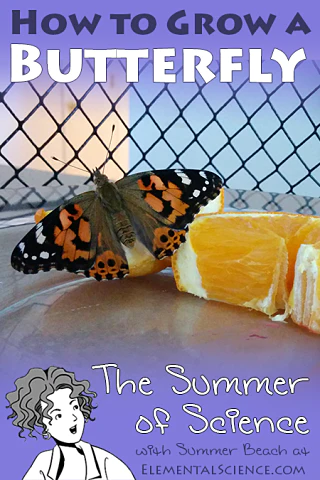
Students can gain knowledge about the various phases of development, from the egg to the larva to the pupa to the adult butterfly, by studying and taking care of a butterfly during its whole life cycle. This offers students a special chance to learn about the insect life cycle and the metamorphosis process.
Learn more: Elemental Science
2. Dissecting a Flower

Dissecting a flower can aid students in honing their analytical and observational skills. This may also aid in their comprehension of how a flower’s various components interact to facilitate reproduction, which is the flower’s main objective.
Learn More: How to Dissect a Flower
3. Extracting a DNA
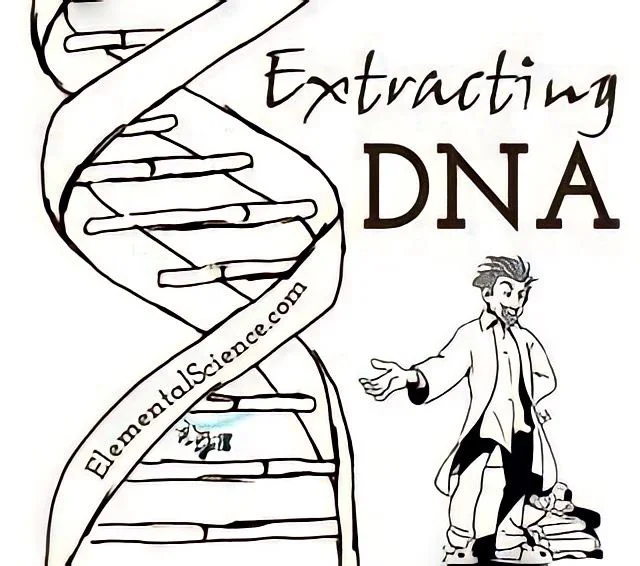
The extraction of DNA is an excellent experiment for high school students to gain a better understanding of the principles of molecular biology and genetics. This experiment helps students to understand the importance of DNA in research and its applications in various fields, such as medicine, biotechnology, and forensics.
Learn more: Extracting DNA
4. Looking at Fingerprints
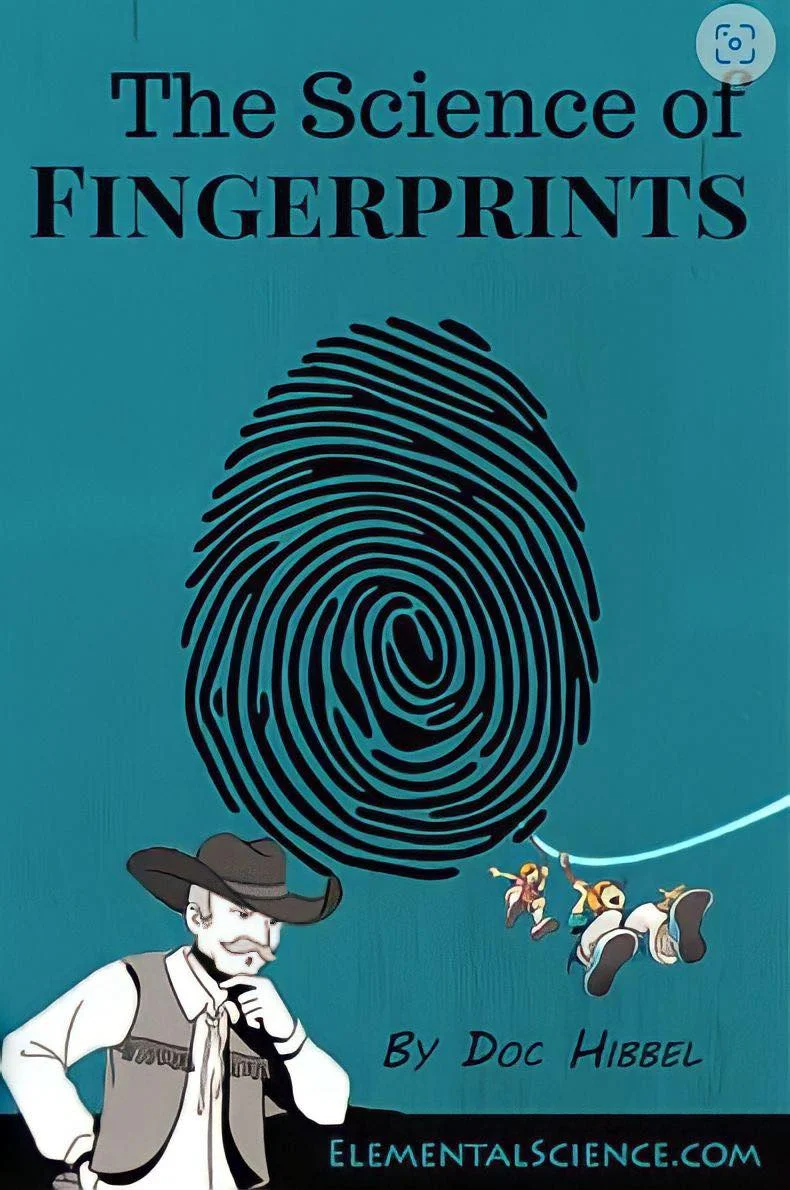
Exploring fingerprints can be a fun and intriguing experiment. This experiment encourages students to develop their problem-solving skills and attention to detail, as they must carefully analyze and compare the various fingerprint patterns.
Fingerprint analysis is a fascinating and engaging experiment that can spark an interest in forensic science and provide students with a hands-on learning experience.
Learn more: Directions to Examine a Fingerprint
5. Cultivate Bacteria on Home Made Agar
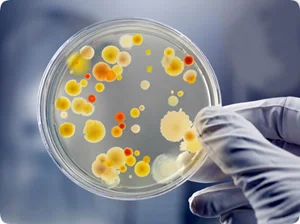
This experiment provides a hands-on learning experience for students to understand the principles of microbiology and the techniques used in bacterial culture.
This experiment can also help students to understand the importance of bacteria in our daily lives, their role in human health, and their applications in various fields, such as biotechnology and environmental science.
Learn more: Grow bacteria on Homemade Agar Plates
6. Make a Bioluminescent Lamp

This experiment provides an excellent opportunity for high school students to learn about bioluminescence and the principles of genetic engineering.
Creating a bioluminescent lamp is a fun and engaging way to explore the intersection of biology, chemistry, and physics, making it a perfect experiment for students interested in science and technology.
Learn more: Make Glowing Water
7. Make Plants Move with Light
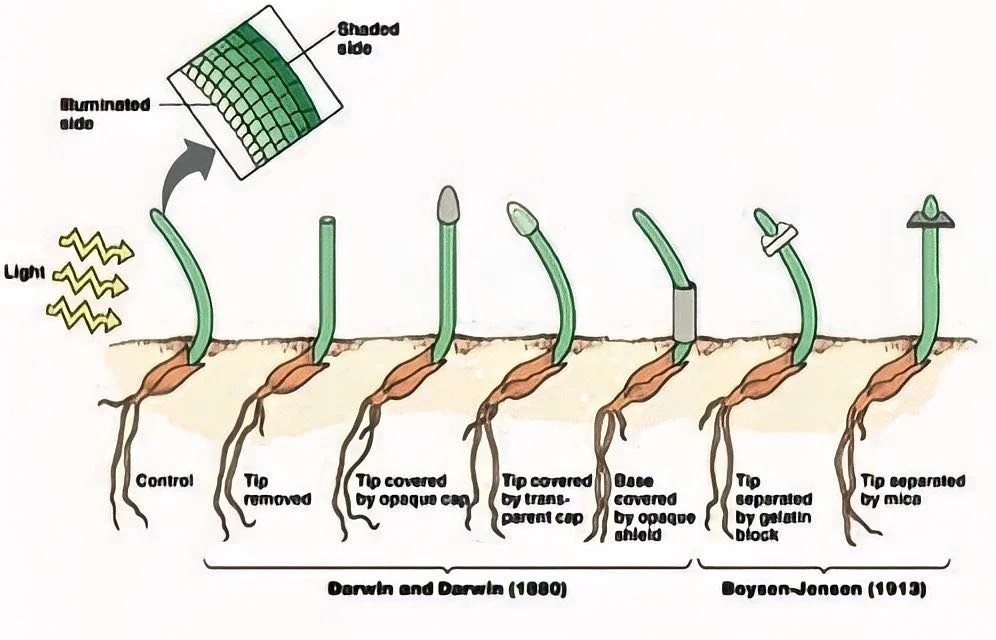
This experiment can help students understand the role of light in plant growth and photosynthesis and the importance of light as an environmental factor for plant survival.
Learn more: Experiments with Phototropism
8. Test the Five-Second Rule

The “5-second rule” experiment is a simple and fun way to investigate the validity of the popular belief that it is safe to eat food that has been dropped on the ground for less than 5 seconds.
The experiment is an engaging and informative way to explore the science behind a common belief and promote critical thinking and scientific inquiry among students.
Learn more: Five Second Rule
9. Examine How Antibiotics Affect Bacteria
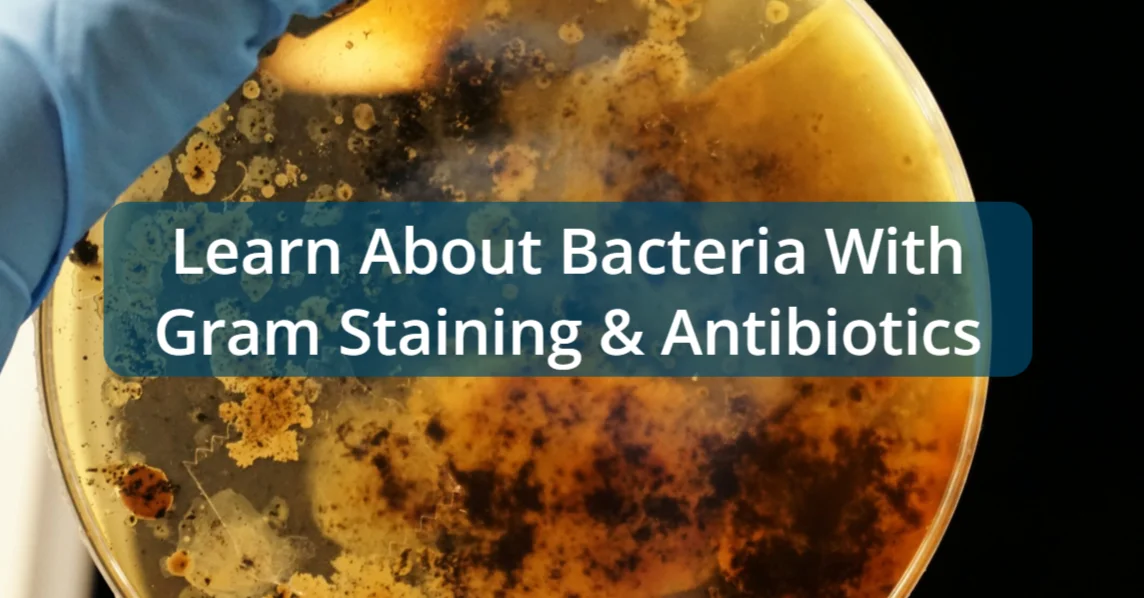
This experiment is an excellent opportunity for high school students to develop their laboratory skills, such as aseptic technique and bacterial culture, and understand the principles of antibiotic resistance and its implications for human health.
Examining how antibiotics affect bacteria is a fascinating and educational experiment that promotes scientific inquiry and critical thinking among students.
Learn more: Learn About Bacteria
10. Look for Cell Mitosis in an Onion
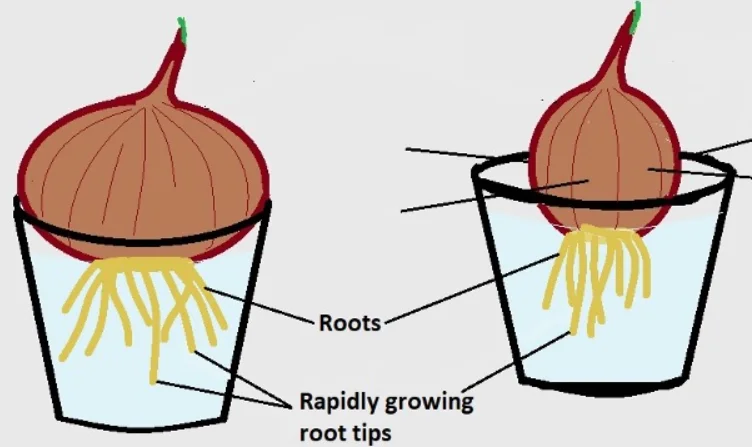
This experiment is an excellent opportunity for high school students to develop their microscopy skills and understand the biological basis of growth and development in plants. This experiment is a fun and informative way to explore the world of cells and their role in the growth and development of living organisms.
Learn more: Onion Root Mitosis
11. Test the Effects of Disinfectants
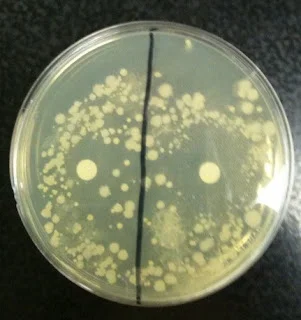
Testing the effects of disinfectants is an important process in determining their efficacy in killing or reducing the number of microorganisms on a surface or object. Disinfectants can be hazardous if not used correctly, and testing their effects can help students understand how to use them safely.
Students can learn about proper handling techniques and how to interpret safety labels and warning signs.
Learn more: Antiseptic and Disinfectants
12. Microwave Seed Gardening
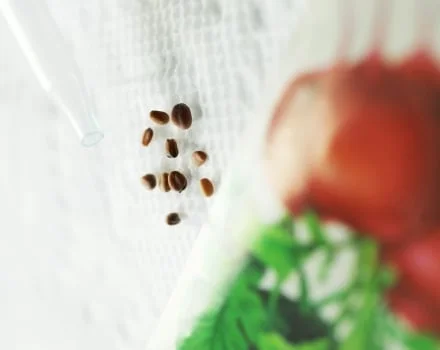
Microwave seed gardening is a quick and efficient method of germinating seeds, microwave seed gardening can be a useful method for starting seeds, but it should be used with care and in conjunction with other germination methods to ensure the best possible results.
Learn more: Microwave plant
13. Water Bottle Bacteria Swab

This experiment can be a fun and informative way to learn about the importance of keeping water bottles clean and free from harmful bacteria. It can also be used to compare the cleanliness of different types of water bottles, such as metal, plastic, or glass.
Learn more: Swabbing Water Bottles
14. Frog Dissection
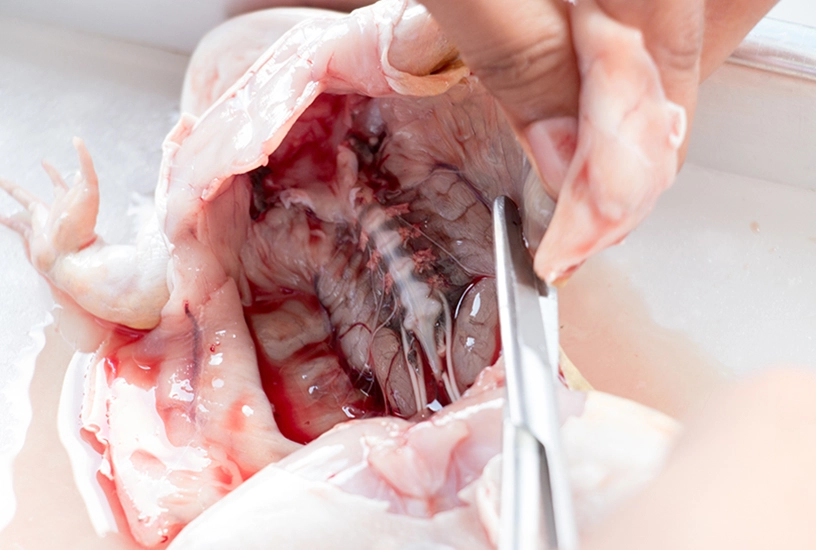
Frog dissection can be a valuable tool for teaching anatomy and physiology to high school students, as it provides a comprehensive examination of the internal organs and systems of the frog.
Dissection can be a valuable and engaging experiment for high school students interested in biology and life science.
Learn more: Frog Dissection
15. Witness the Carbon Cycle in Action
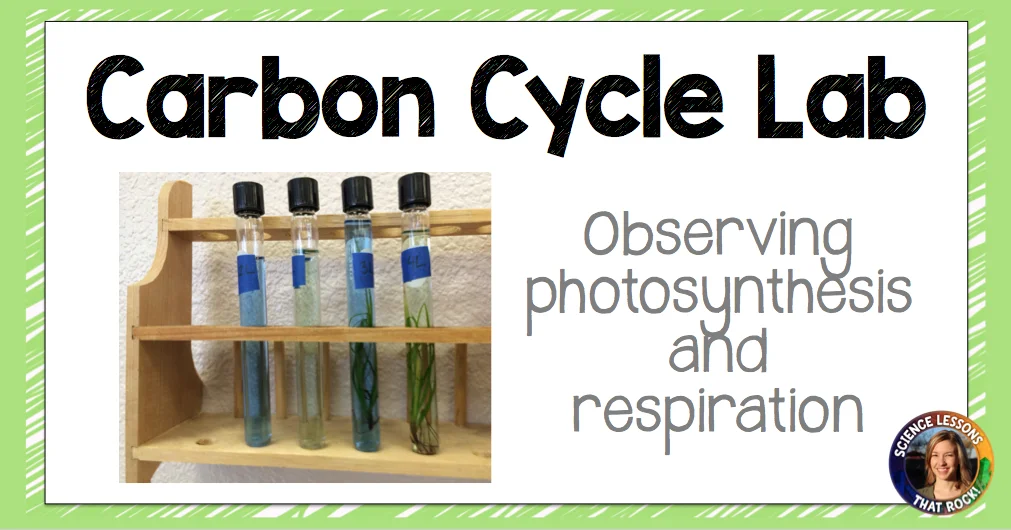
By witnessing the carbon cycle in action, learners can gain a better understanding of the interconnectedness of different parts of the Earth’s system and the impact that human activities can have on these processes.
Learn more: Carbon Cycle Lab
16. Investigate the Efficacy of Types of Fertilizer
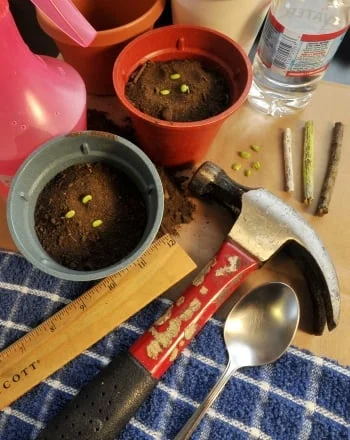
Investigating the efficacy of different types of fertilizer can be an interesting and informative way to learn about plant growth and nutrition. Investigating the efficacy of different types of fertilizer is a practical and engaging way to learn about plant nutrition and the role of fertilizers in agriculture.
Learn more: Best Fertilizer
17. Explore the Impact of Genetic Modification on Seeds
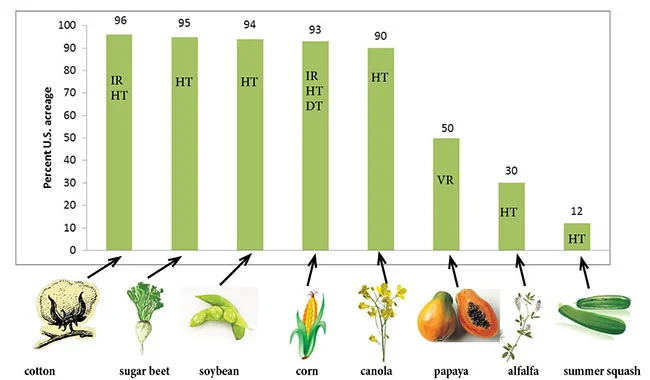
Exploring the impact of genetic modification on seeds is a fascinating and relevant topic that can spark meaningful discussions and encourage learners to think critically about the role of science and technology in society.
Learn more: Genetically Modified (GM) Crops
18. Yeast Experiment
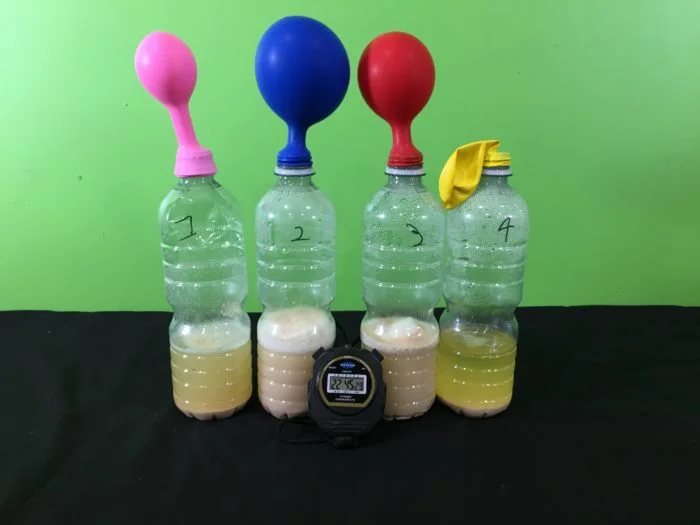
Another easy to perform experiment for high school students is the yeast. This experiment is simple since all that is required is the removal of four different food samples onto separate plates and a thorough examination of the mold that develops on each sample over time.
Learn more: Grow Yeast Experiment
19. Taste Perception

The human tongue has specialized taste receptors that respond to five primary tastes: sweet, salty, sour, bitter, and umami (savory). Taste perception plays an important role in determining food preferences and dietary habits, as well as influencing the overall eating experience.
Learn more: Taste perception
20. Pea Plant Genetics
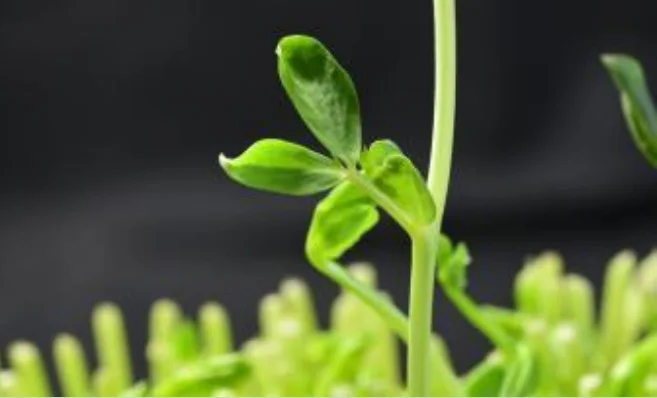
A classic pea plant genetics experiment involves cross breeding pea plants with different traits, such as flower color, seed shape, or pod shape.
This experiment can be conducted in a controlled environment, such as a greenhouse, by manually transferring pollen from one plant to another.
Learn more: Gregor Mendel Pea Experiment
21. Comparing Animal and Plant Cells
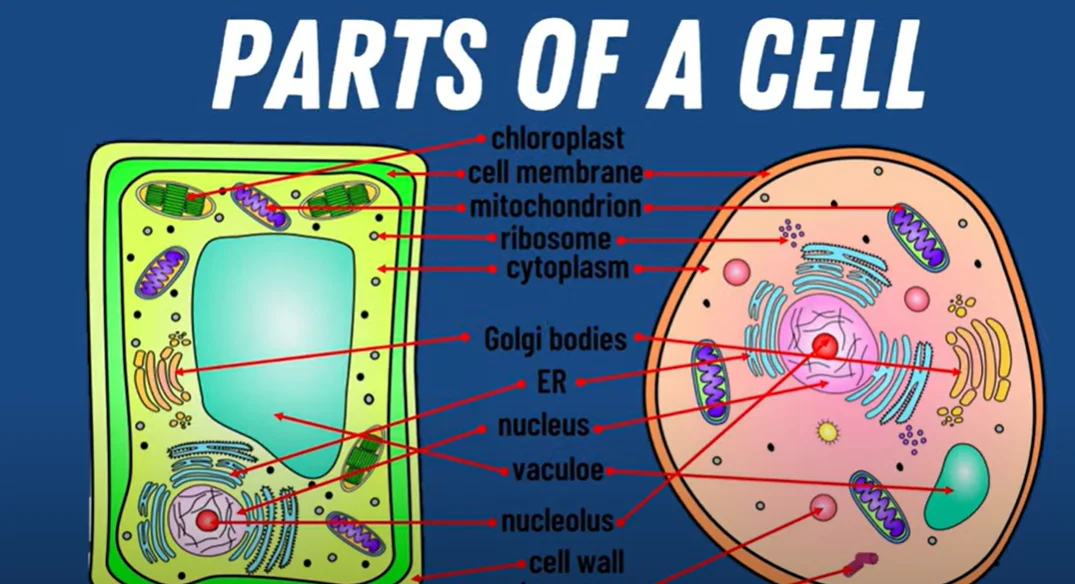
Comparing animal and plant cells is an important exercise in biology education. Both animal and plant cells are eukaryotic cells, meaning they contain a nucleus and other membrane-bound organelles.
This exercise can help students understand the structure and function of cells, as well as appreciate the diversity of life on Earth.
Learn more: Comparing Plant Cell and Animal Cell
22. Testing Bacteria
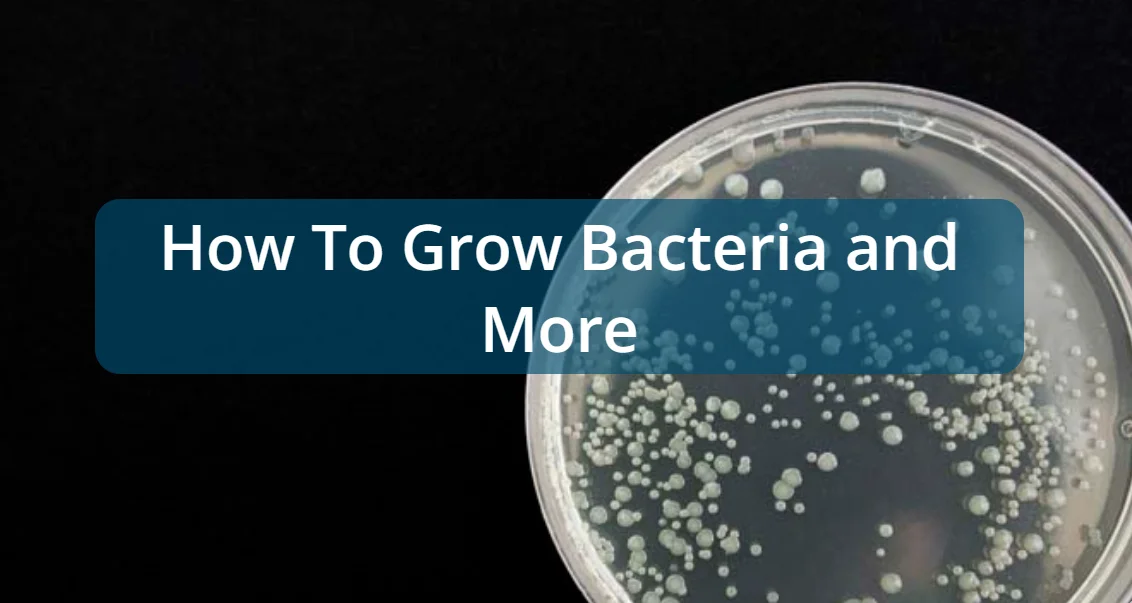
Bacteria are easily accessible and can be grown in a laboratory or even at home with simple equipment and materials. This makes it a practical and cost-effective experiment for schools with limited resources.
Learn more: How to grow Bacteria and more
23. The Effect of Light on Growth
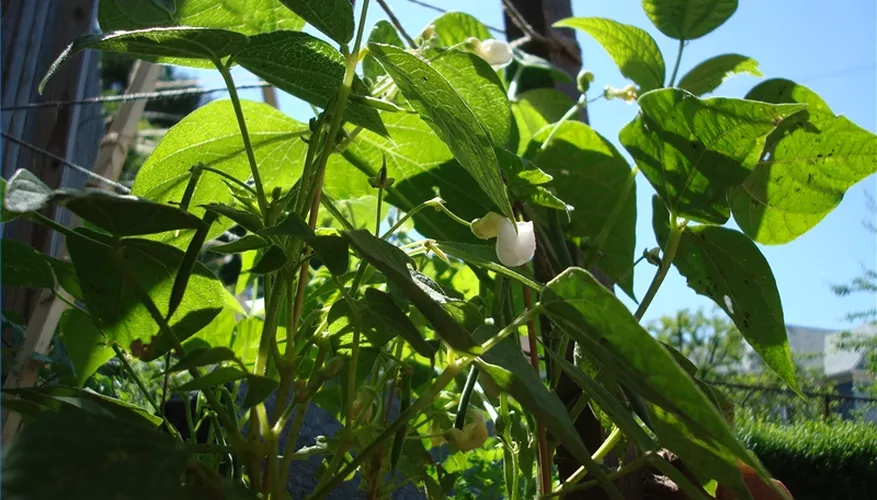
Light is a fundamental environmental factor that plays a crucial role in the growth and development of plants. By conducting this experiment, students can gain a deeper understanding of how light affects plant growth and why it is important.
Learn more: The effect of light in Plant Growth
24. Planaria Regeneration
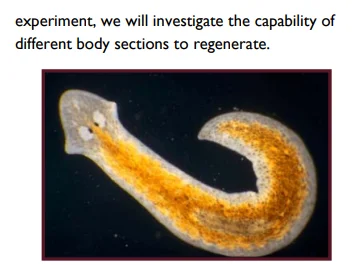
Planaria regeneration allows students to design their own experiments, as they can choose which body parts to remove and study the effects of different variables, such as temperature, pH, or chemical treatments on the regeneration process.
Planaria are easy to obtain and maintain in a laboratory or classroom setting. They are also affordable, making it an ideal experiment for schools with limited resources.
Learn more: Planaria Experiment
25. Making a Seed Board

Making a seed board can be a fun and engaging activity for students, as they can see the progress of their plants over time and share their results with others. It can also foster a sense of responsibility and ownership in caring for their plants.
26. Design an Owl Pellet

Dissecting an owl pellet provides a hands-on learning experience for students, allowing them to practice skills in scientific observation, data collection, and analysis. Students can also learn about the anatomy of the prey species found in the owl pellet.
27. Grow an Herbal Cutting
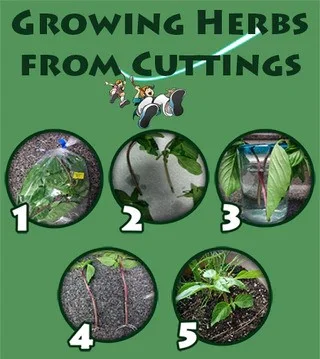
Growing an herb cutting provides a hands-on learning experience for students, allowing them to practice skills in plant care, experimental design, and data collection. Students can learn about the different stages of plant growth and the factors that affect it.
28. Eat a Cell Model

Creating an edible cell model connects to various disciplines, such as biology, anatomy, and nutrition. Students can learn about the different organelles that make up a cell and their functions, as well as the nutritional value of the food materials used in the model
29. Make a Habitat Diorama

Making a habitat diorama provides a hands-on learning experience for students, allowing them to practice skills in research, creative design, and presentation. Students can learn about different ecosystems and the organisms that inhabit them.
30. Create a Fall Leaf (or Signs of Spring) Journal

Creating a fall leaf (or signs of spring) journal provides a hands-on learning experience for students, allowing them to practice skills in observation, data collection, and analysis. Students can learn about the changes that occur in nature during the fall or spring season.
Similar Posts:
- 68 Best Chemistry Experiments: Learn About Chemical Reactions
- A Guide on Vocational Technical Schools
- Guide on College and University Admissions
Leave a Comment Cancel reply
Save my name and email in this browser for the next time I comment.
For Earth Day, Try These Green Classroom Activities (Downloadable)
- Share article
Earth Day is April 22 in the United States and the day the spring equinox occurs in some parts of the world. It’s a day to reflect on the work being done to raise awareness of climate change and the need to protect natural resources for future generations. Protecting the earth can feel like an enormous, distant undertaking to young people. To help them understand that they can play a role by focusing on their backyards or school yards, educators can scale those feelings of enormity to manageable activities that make a difference.
We collected simple ideas for teachers and students to educate, empower, and build a connection with nature so that they may be inspired to respect it and protect it. Classrooms can be the perfect greenhouse to grow future stewards of the environment.
Click to Download the Activities

Sign Up for EdWeek Update
Edweek top school jobs.

Sign Up & Sign In

13 Cancer Research and Passion Project Ideas for High School Students

By Alex Yang
Graduate student at Southern Methodist University
By Soha Aslam
Principal Nuclear Engineer
8 minute read
Cancer research addresses one of the most devastating and widespread diseases that affects millions of people worldwide. Cancer is a complex group of diseases and ongoing research is essential to better understand its underlying causes, develop innovative treatments, and improve early detection methods. This research not only saves lives by advancing our ability to diagnose and treat cancer more effectively but also improves our knowledge of the fundamental workings of cellular biology, allowing for breakthroughs in fields beyond just cancer research.
Cancer research can be a particularly exciting field if you already have an interest in STEM. Although high school courses like AP Biology may provide an introduction to cancer, you don’t have to wait until college to dive deeper into the topic. A cancer research passion project can be a great way to learn on your own.
Finding the Right Cancer Research Passion Project For You
Even within the topic of cancer research there are many different directions you can go with your project. For example, you could focus your research on a specific kind of cancer and its nuances. You could also focus on different aspects of cancer research, like investigating what may cause cancer, how to treat cancer, how to detect cancer, and how cancers develop over time. Try to focus on one of these specific areas as opposed to doing a project about cancer as a whole. A more targeted approach will make it easier for you to do research and organize your findings.
13 Cancer Research Passion Project Ideas
1. on top of genetics - epigenetics in cancer.
Mutations within a cell are a driving force in cancer; however, it is not the only way a cell could become malignant. In this project, you will explore how epigenetic modifications (ie. DNA methylation or DNA oxidations) can facilitate cancer cell survival. This project could be conducted in multiple ways: a scientific blog, a review article, a brief video, or a podcast.
Idea by cancer research mentor Alejandra
2. Cancer deep dive
Different types of cancer, and even different subtypes, have drastically different outcomes. For example, patients with HPV-mediated cancers are more sensitized to radiation, meaning lower doses of treatment may be equally effective as higher doses but with fewer side effects. In this project, students can pick a specific type of cancer and do a deep-dive on the mutation that causes the cancer, the treatment, and current/future therapies.
Idea by cancer research mentor Kendra
3. How can RNA be used to treat cancer?
One class of new cancer therapies uses RNA molecules to specifically target cancer cells. In this project, you will explore RNA therapies currently in use. After learning about these therapies, you will then come up with a new target or approach for the use of an RNA therapy in treating cancer or another disease of your choice. Your findings can be summarized in a scientific paper or presentation.
Idea by cancer research mentor Rebecca
4. Essentiality of genes in pancreatic cancer
Certain genes are essential for all cancer cells to survive. However, some genes are only essential in certain cell type contexts. To figure out how to kill cancer cells of certain cell types, we can use publicly available data on the Broad Institute's Cancer Cell Line Dependency Map database . This database shows which genes are essential across thousands of cancer cell lines. For example, if you look at pancreatic cancer specifically, you can identify genes that are important for cell survival only in the pancreatic cancer context. Look at other cancers and learn about the genes that are essential for the cancer’s survival and present your findings.
Idea by cancer research mentor Lauren
5. Designing a novel CAR T cell therapy
Chimeric antigen receptor (CAR) T cells are immune cells genetically engineered to attack specific proteins implicated in cancer, autoimmune diseases, or viral infections. This project will challenge students to design a CAR T cell therapy for their disease of interest by 1) reviewing literature on antigen(s) specific to their chosen disease; 2) learning basics of T cell biology and genetic engineering; and 3) writing a research proposal to assess the safety and efficacy of their designer T cell therapy.
Idea by cancer research mentor Josh
6. Investigating the role of a particular gene in the development of breast cancer.
Breast cancer is a leading cause of cancer-related deaths in women, and understanding what causes its development is crucial for developing more effective treatments. In this project, you will investigate the role of a particular gene in the development of breast cancer, using online databases and other sources to collect data on the expression of the selected gene in normal and cancerous breast tissue. This project could involve the following steps: 1. Research the function of the selected gene and its potential role in cancer development. 2. Use online databases and other sources to collect data on the expression of the selected gene in normal and cancerous breast tissue. 3. Use bioinformatics tools to analyze the data and determine if the selected gene is differentially expressed in cancerous tissue. 4. Analyze the data and interpret the results, and write a scientific report summarizing the findings and their implications.
Idea by cancer research mentor Chanelle
Create a research project tailored to your interests and your schedule
Polygence pairs you with an expert mentor in your area of passion. Together, you work to create a high quality research project that is uniquely your own. We also offer options to explore multiple topics, or to showcase your final product!
7. Personalized disease markers
Cancer is a personalized disease - no two patients will have exactly the same cancer. This problem makes cancer difficult to treat and cure. Modern cancer research looks for disease markers specific to certain patients that may make them respond better to certain treatments. In this project, you can choose a cancer type and review the different markers known to inform patient treatment outcomes.
Idea by cancer research mentor Sarah
8. Dormant cancer cells
Cancer cells undergo a process called dormancy to evade immune surveillance, by which cancer cells are not actively undergoing the cell cycle process, allowing them to remain "asleep" within a patient's body. The major problem with dormant cancer cells is that once they "wake up", they spread quickly to other parts of the body and are resistant to treatment. Explore and learn about the concept of dormancy.
9. Understanding how cells in the tumor affect tumor growth
When researchers evaluate the cells present in a tumor, there are generally two main classes: cells that help the tumor grow (pro-tumor) and those that try to destroy the tumor (anti-tumor). As we start to learn more about which cell types are present in the tumor, we start to understand how the tumor evades our bodies natural defenses. These insights can also be used to develop new treatment strategies for patients with cancer. Writing a literature review on this topic will provide you with a thorough understanding of many aspects of immunology and gives you the opportunity to publish your research in a journal .
Idea by cancer research mentor Xanne
10. Cancer health disparities
Unfortunately, many studies have shown that race and gender can affect the level of care cancer patients receive which ultimately affects their survival chances. In this project, you can research a specific area of disparity and its effects on cancer patients and the treatment they receive. Next, you can propose a strategy to overcome the disparity using knowledge of cancer medicine and public health policy.
11. Decreasing risk of getting cancer
While there are many factors predisposing a person to getting cancer, it is important to share the ways we can work to control being exposed to certain risk factors. Students can explore these risk factors to prepare a review article, presentation, or community event to educate the next generation about how limiting factors such as sun exposure, poor diet, alcohol use, and getting genetic testing early if your family has a history of cancer, can decrease your risks of getting certain cancers.
Idea by cancer research mentor Carly
12. Exploring the connections between cancer, organ transplantation and pregnancy
For years, scientists have been trying to solve problems related to organ transplantation and cancer. When a patient receives a much-needed organ from a donor, the immune system can recognize the organ as foreign and attack it. However, when a patient develops cancerous cells, the immune system can fail to recognize that the cells don't belong, allowing the cancer to spread. Yet, during pregnancy, a mother is able to carry a fetus for 9 months even though half of its genetic material is not shared by the mother. Can cancer and pregnancy help us solve some of the challenges related to organ transplantation? Explore this question and share your findings.
Idea by cancer research mentor Amber
13. Exploring nuclear physics and radiation detection for cancer therapy
Last but not least, nuclear physics plays a pivotal role in cancer treatment, with applications like radiology, boron neutron capture therapy (BNCT), and the use of radioisotopes for diagnosis and treatment. Here are some project ideas in this realm:
Radiology and Cancer Imaging: Radiology, a branch of medical science that uses ionizing radiation, is a powerful tool for cancer diagnosis. Explore the various imaging techniques like X-rays, CT scans, and MRI that utilize radiation to detect and visualize tumors. Investigate the advancements in radiology technology and how it aids in early cancer detection and treatment planning.
Boron Neutron Capture Therapy (BNCT): BNCT is a cutting-edge cancer therapy that involves targeting tumor cells with boron-10-loaded compounds and irradiating them with thermal neutrons. This technique results in the release of high-energy alpha particles, specifically damaging cancer cells while sparing healthy tissue. Delve into the principles of BNCT, its potential applications, and the latest research in this field. Share your insights through a detailed report or a presentation.
Radioisotopes in Cancer Treatment: Radioisotopes are radioactive forms of elements that can be used in various cancer treatments. Investigate how radioisotopes like iodine-131, yttrium-90, and others are employed for targeted cancer therapy, such as radioiodine therapy for thyroid cancer. Explore the mechanisms, benefits, and challenges associated with using radioisotopes in cancer treatment. You can present your findings through a research paper, presentation, or even an educational video or podcasts.
By venturing into nuclear physics and radiation detection for cancer therapy, you can contribute to the understanding and advancement of non-invasive cancer treatments and diagnostics, making a significant impact in the field of oncology.
Idea by nuclear physicist research mentor Soha
How to Showcase Your Cancer Research Passion Project
After you’ve done the hard work of researching cancer, you should also dedicate time towards deciding how you want to showcase your project . There are many unique ways that you can showcase a project. Specifically for cancer research, you could write a research paper or do a literature review, or you could try to execute something more creative like a presentation with graphics or a podcast. The decision is up to you, but be sure that with whatever showcasing method that you choose, make sure that the hard work and effort that you put into your research comes through.
Examples of Cancer Research Passion Projects Completed by Polygence Students
Cancer research is a popular topic for Polygence students, and we wanted to showcase some of the great work that our students have done in the field!
Natalie’s project was a research paper she wrote about immunotherapies for breast cancer, which affects around 1 in 3 women.
Dnyanada did research into melanoma, a type of skin cancer, and a specific immunotherapy called Nivolumab. Dnyanada found through her research that patients who were treated with Nivolumab had specific gene expressions that could reveal whether the treatment was affecting the patient positively or negatively. Dnyanada then used machine learning models to predict whether certain patients would have a positive or negative response to Nivolumab.
Shravan worked on a project designing a CRISPR-Cas9n genetic therapy for Lynch syndrome (hereditary non-polyposis colorectal cancer). Shravan was able to present his project at Polygence’s 8th Symposium of Rising Scholars , and also created a series of blog posts, as well as a research paper to submit to journals.
Arif worked on a project modeling Boron Neutron Capture Therapy (BNCT) using an open source modeling tool called OpenMC. CT relies on the selective accumulation of boron-10 within tumor cells, followed by irradiation with thermal neutrons. Arif's modeling efforts likely encompass the detailed calculations of neutron flux, the behavior of boron-10 under irradiation, and the subsequent release of high-energy alpha particles within the tumor.
Complete a Cancer Related Research Project With Polygence
In this article, we covered how to pick the right cancer research project for you, shared some project ideas, and discussed best practices for how to showcase your project.
If you’re interested and inspired by cancer research and you’re interested in diving deeper, Polygence’s programs are a great place to start. You’ll be able to meet virtually one-on-one with a biology/cancer research mentor who can help you learn new concepts and brainstorm with you on how to showcase your passion project.
Related Content
How to Become a Cancer Researcher: Selena Lorrey's Journey
High School Project on AI in Cancer Research: Sia's Research Paper and Blog
High School Cancer Research Student Ojas Writes a 30-Page Paper
Genetic Engineering as an Effective Cancer Therapy: A Research Paper Focused on CRISPR
A Paper on the Relationship Between the Most Significant Breast Cancer Susceptibility Proteins, Aldehydes, and Prostate Cancer
Medical Research Project Ideas for High School Students
Get Matched with a Mentor
Interested in doing one of these exciting research projects? Click below to get matched with one of our expert mentors!
School of Music

Madeline Yankell brings the bubbly Vesta to life in the Hancher premiere of Fierce
Vesta―named after the Roman goddess of the Earth―is one of the four principal characters in Fierce , a new opera that follows four young girls (also referred to as “muses”) as they prepare for the next chapter of their lives. The opera—making its Iowa premiere—reflects the collaborative spirit of Performing Arts At Iowa and will be co-produced by the School of Music, the Performing Arts Production Unit, and Hancher Auditorium. Vesta, played by Madeline Yankell, is the youngest of the muses. She is naive, bubbly, and sometimes she takes refuge from life in a fantasy world full of otters.
Yankell is a graduate student in music education who recently defended her MA thesis on movement and choral singing. She has previously performed in La Traviata and Dialogues des Carmelites .
“I’m so excited to perform at Hancher. It’s a dream come true,” Yankell beams, “I’ve had the opportunity to perform on the Hancher stage a few times but the fact that I get to sing a song about otters on this huge stage is just kind of nuts.”
Yankell grew up on the east coast in Moorestown, New Jersey, before pursuing her BA with a focus in music teacher education from Case Western Reserve University in Ohio. After graduating, she moved to Massachusetts, where she spent a few years teaching high school choir.
“I applied to a lot of different grad programs in places all over the country,” Yankell explains what drew her to the University of Iowa. “UI really has the perfect combination of research and performing arts funding. I get to participate in operas, choirs, and be part of the performing arts but I also get to do music education research.”
Since Yankell has been at the university, she’s enjoyed the collaborative environment encouraged in the School of Music and across Performing Arts At Iowa.
When she was exploring her grad school options, Yankell says, “I just happened upon the performing arts scene in Iowa City. The Iowa City community is really strong and so supportive of the arts. Also, the School of Music, Hancher, and the theatre and dance departments have been working well together to create more collaborative experiences for students. The students also really support each other here.”
Yankell is currently in the last semester of her master’s so, when the opportunity to audition for Fierce came around, she jumped at it.
The new opera was composed for Cincinnati Opera by Dr. William Menefield, a UI assistant professor of Jazz Studies, in collaboration with librettist Sheila Williams. It premiered there in 2022. For the Hancher debut, Menefield will be taking on the role of director.
“I knew Dr. Menefield was the leader of the Black Pop Ensemble and they’re such a great group,” Yankell says. “I really wanted to work with him, and this opera is so different from anything I’ve ever done.”
The characters of the four muses were created by Williams, based on the real life stories and personalities of a group of Cincinnatti -area high school girls she talked with in a yearlong series of heart-to-heart conversations. These rich conversations spanned topics such as parental expectations, the best lipstick color, ethnic identity, and college admissions anxiety.
Yankell is excited to bring the bubbly character of Vesta to life on the Hancher stage.
“What I really love about playing Vesta is that she’s got these layers of sadness and depth,” Yankell explains her role. “There’s a great juxtaposition between her bubbly exclamations about how magical otters are, and the issues she faces at home with her parents. She also gets to be brave and bold. Behind her silliness there is so much wisdom and strength.”
As Yankell has been rehearsing for Fierce , she has also been writing her master’s thesis. She is passionate about music education and would like to return to teaching high school students after graduation—with aspirations towards teaching at the collegiate level in the future.
Yankell notes “Something I’ve enjoyed about working with Dr. Menefield and the production team is that they’ve fostered an environment of growth. We’ll often stop to discuss acting methods or vocal technique, which is so important because, at the end of the day, we’re a learning community.”
“And it’s just a fun project because we have Dr. Menefield there and he wrote it,” she adds. “There are days where he’ll say he was channeling something specific, like Beyonce. It’s not often you get to channel Beyonce while working on an opera.”

Meet Cami Rezabek, the student choreographer for the School of Music’s spring opera, Fierce
Cami Rezabek is a fourth-year BFA student in the Department of Dance with minors in English and Gender, Women’s and Sexuality Studies, the undergrad research assistant for the UIDC, and the student-choreographer for Fierce, a new 21 st -century opera that follows four teenage girls through a journey of discovery as they write their college admissions essays. Fierce makes its Iowa debut on the Hancher stage April 26-27, 2024.
Rezabek is originally from Cedar Rapids, Iowa. Her mother, Carol, is a dancer, choreographer, dance teacher, and an alum of the University of Iowa with BFA degrees in Dance and Theatre Arts—so naturally, Cami began dance lessons by the time she was 3 years old. And the UI was a natural fit, too, when it came time for college.
“The dance program here is so good,” she explains, “and my family has a history in this department, so it just made sense.”
Cami started dancing at the UI in Fall 2020, amidst strict COVID pandemic restrictions—switching between Zoom ballet lessons and social-distanced rehearsals where students danced in six-by-six squares taped to the studio floor.
“It was an interesting first year,” she says. “I feel like I got really close to the dancers I came in with but, because we weren’t in Halsey Hall, we didn’t have the opportunity to meet and mingle with the older students in the program.”
Since then, Rezabek had been actively participating in UI dance performances, touring with the UIDC, and seeking out opportunities to choreograph.
“I’ve always had a passion for choreography,” Rezabek describes her choreographic work. “For me, it’s all about creating or elevating a story, bringing meaning to movements. I like to build dances around a narrative or a message, and think about the way every step, every movement, and all these small moments can come together in the body.”
“For musicals or pieces that have an existing story, I spend a lot of time analyzing the story,” she explains. “Choreography can add another layer to the piece, so it’s important to examine what’s there and find moments where a movement can bring something new and enlightening to a character or a scene.”
During the fall semester, Rezabek flexed her interpretive skills in a different way, working as a research assistant with UIDC. For their 2023-2024 season, UIDC prepared an interactive program of dance and dialogue called Dances Described that put special emphasis on the use of Audio Description as a tool for making dance more accessible to audiences with blindness, low vision, and other visual impairment. While the company developed their new piece, “Winning,” led by UIDC Artistic Director and Assistant Professor of Dance Stephanie Miracle, Rezabek created the Audio Descriptions that are read aloud—live—during the dance performance.
“Writing the Audio Description as we were creating the piece was a huge benefit,” says Rezabek. “Hearing how the dancers describe their own movements has really expanded the way I write about dance, and I can better communicate the visual into language. It’s helped me become a better choreographer and a better dancer.”
Rezabek was also one of the 38 UI student dancers who performed Martha Graham’s Panorama during the GRAHAM100 concert at Hancher on March 29. In early January, Rezabek and the rest of the ensemble dancers were hard at work in Halsey Hall, learning the historic choreography and intense Graham Technique while snowstorms whirled outside.
“It was really the opportunity of a lifetime to share the Hancher stage with professional dancers who perform at such a high level,” Rezabek explains. “When I graduate, I want to get a job with a dance company. Being part of the Martha Graham performance was a professional experience that I could have never imagined, and one that I am so grateful to have as I move into the next phase of my career.”
Rezabek was still rehearsing for Panorama when she joined the creative team of Fierce . It was another remarkable opportunity, particularly for an undergraduate student.
“Honestly,” Rezabek admits, “I didn’t think I was going to get the job, so I was really excited when I did.”
Fierce was first commissioned by Cincinnati Opera and composed by UI assistant professor of Jazz Studies William Menefield, who wrote the music for the opera in collaboration with author and librettist Sheila Williams.
“Once I read the description of the opera, I knew I wanted to be a part of the project,” Rezabek describes her initial interest in Fierce. “The story is very relatable and it’s also very modern with jazz, R&B, and Latin influences. It’s such a robust musical score so there is so much material I can pull from as a choreographer.”
Her first task was to find four dancers to work with, which proved to be difficult since many of the dancers in the Department of Dance had packed schedules. “At one point I counted, and there were five dance shows that overlapped with the rehearsals for Fierce ,” Rezabek explains, “so I had to get a little creative.”
Eventually, she found her four dancers: Fabiola Casteneda-Santiago (BA student in Biology), Chloe Schwab (BA in Theatre Arts), Joslyn Sheley (BA in Psychology, Political Science, Pre-Law), and Trinity Woody (MA in Dance Pedagogy and Instruction, Pre-Business). “They’ve been amazing,” Rezabek explains, “I don’t have to coach them on how to add style to their movement, so I can really focus on developing the choreography and the ideas that we’re trying to elevate through dance.”
As part of her development process, Rezabek conducted extensive research on the various influences that Dr. Menefield has incorporated into his composition.
“There is a lot I can derive from the music itself, but I wouldn’t want the movements to feel false,” she describes her research process. “I really watched a lot of videos, going back and forth between basic tutorials and more advanced performances because it’s important for me to learn and know the styles that my choreography is referencing. For example, I’m not as familiar with salsa. I had to spend some time with the style so that I could present something authentic.”
During rehearsals, Rezabek arrives with her thoroughly marked-up script and, as the singers are practicing in the opera studio on the lower level of the Voxman Music Building, the dancers develop and work on their choreography upstairs. Then, she works with Dr. Menefield to incorporate the choreography into the blocking for the actors and other cast members.
“I’ve felt really respected in the process,” says Rezabek. “I think it really helps that Dr. Menefield is both composer and director. Not only can I hear the feeling and intention in the music itself, but he’s also there to provide me with feedback. He’s always treated me like a professional, so he’ll tell me if something’s not working and, on the other hand, he’s not afraid to show enthusiasm when the choreography comes together.”
“I’m so excited to see the evolution of this production,” Rezabek says, “and I can’t wait for audiences to see all the performers come into their character. We’re really going to turn it on and light up the Hancher stage.”

IMAGES
VIDEO
COMMENTS
In this project, we will perform and systematic review and meta-analysis of fasting or diet-induced autophagy and its benefits on the body. You will gain skills in 1) searching and reviewing primary literature, 2) computational skills for performing data analysis (R language), and 3) writing your scientific findings.
200 Biology Research Topics- To Start With Right Away. High School biology has several sections to choose from, which may make it taxing for students to resolute on one choice. Here is a sizable list of 201 biology research topics for high schoolers which they can start instantly: Cell Biology. Animal cell and its structure; Functions of Cells ...
Here are 30 research ideas for high school students to stimulate inquiry and enhance their understanding of biological principles. 1. Genetics and Heredity: Understanding Life's Blueprint. Genetics and heredity are the foundation of life's diversity.
A good biology project needs to have enough scientific research backing it so that it helps support or disprove your hypothesis. This article is all about easy and interesting research projects designed just for keen high school students. We'll explore topics in the domain of the human body, ecosystems, diseases and their treatments, and more.
Study cancer immunotherapy: the study of how cancer cells evade the immune system and how we can harness the immune system to battle cancer. 5. Track current progress and limitations of new methods and identify next opportunities. 6. Study how cancer cells can evolve to become resistant to certain treatments that were once effective.
Texas Tech University's Research Program is pivotal in cultivating the next generation of scientists and healthcare professionals by providing high school students with university resources and mentorship. 11. University of Chicago's Research in the Biological Sciences. Location: University of Chicago.
Binary fission as a means of cell reproduction. Enzymes that regulate gene expression. Enzymes that regulate RNA activities. The role of food vacuoles in a cell. How the body regulates its water content. The balance of electrolytes in the human body. These topics are biology research topics high school students would find interesting, and easy ...
Life Science Research Topics For High School Students. 41. Investigating the effects of different diets on human health. 42. Analyzing the impact of exercise on cardiovascular fitness. 43. Studying the genetics of inherited traits and diseases. 44. Investigating the ecological interactions in a local ecosystem. 45.
A List of Researchable Topics for Biology. A list of researchable topics for biology students starts with several interesting biological topics concerning sociological perspective and ethical issues. The most debatable subjects are abortion, human cloning, genetic researches and the new ethics that should be created to resolve these issues.
Research Topics in Biology for Undergraduates. 41. Investigating the effects of pollutants on local plant species. Microbial diversity and ecosystem functioning in a specific habitat. Understanding the genetics of antibiotic resistance in bacteria. Impact of urbanization on bird populations and biodiversity. Investigating the role of pheromones ...
Biology Research for High School Students. Biology forms the basis of medical breakthroughs, agricultural innovations, and environmental conservation efforts. At the microscopic level, disciplines like genetics and cell biology delve into the molecular machinery that underpins life. Scaling larger, ecology explores the interactions between ...
1) Center for Talented Youth (CTY) Honors Biology. Hosting institution: Johns Hopkins University. Cost: $1,455. Format: Online. Application deadline: rolling admissions. This is an online research course where students will learn complex biological concepts in an online environment. It is great for students who are getting ready for AP biology.
As a researcher, you could help contribute to critical research that can help limit pollution and create sustainable practices. Some research ideas you can consider include: 17. Investigate how introducing artificial coastal reefs and other techniques to restore habitats can help improve marine biodiversity. 18.
Build a Wind-Powered Car. Delve into the intricacies of human biology and health with this collection of science experiments. Investigate anatomy, physiology, and diseases. Explore classic and cutting-edge high school science experiments in this collection of top-quality science investigations.
Here are 10 research opportunities in the field of biology for high school students: 1. Research in the Biological Sciences (RIBS) at University of Chicago. University of Chicago's Research in the Biological Sciences is an intensive four-week pre-college summer program designed to introduce students to a variety of research techniques in the ...
Testing plants and gravity. Testing root growth in relationship to gravity is a fun and simple idea. To do this, students need to cut a strip of paper towel approximately one inch wide. Then, they lay pinto beans on the strip and roll it up. Next, moisten the strip and tape it to a square of cardboard, placing the entire thing in a zip top bag.
Explore Our Science Videos. Unlock the building blocks of life with genetics and genomics science experiments. Explore inheritance, DNA, and genetic variation. Explore classic and cutting-edge high school science experiments in this collection of top-quality science investigations.
These biology research project ideas provide opportunities to conduct hands-on experiments, collect data, and draw meaningful conclusions while exploring various aspects of biology. High school students can adapt these ideas to match their interests and the available resources in their educational environment.
For example, last year over 4000 students applied for 500 spots in the Lumiere Research Scholar Program, a rigorous research program founded by Harvard researchers. The program pairs high-school students with Ph.D. mentors to work 1-on-1 on an independent research project .
3. Extracting a DNA. The extraction of DNA is an excellent experiment for high school students to gain a better understanding of the principles of molecular biology and genetics. This experiment helps students to understand the importance of DNA in research and its applications in various fields, such as medicine, biotechnology, and forensics.
Here are five specific high school sociology research topics and how you can approach them: 61. Investigate the impact of social media algorithms on echo chambers and polarization in online communities. Social media shapes public discourse.
Ahenewa El-Amin leads a conversation with students during her AP African American Studies class at Henry Clay High School in Lexington, Ky., on March 19, 2024. Jaclyn Borowski/Education Week
UM professor Andrew Whiteley uses a viewing bucket to look at a rainbow trout while surveying Rattlesnake Creek with his class on Tuesday, Sept. 19, 2023. Ryan Brennecke, University of Montana ...
High School Project on AI in Cancer Research: Sia's Research Paper and Blog. High School Cancer Research Student Ojas Writes a 30-Page Paper. Genetic Engineering as an Effective Cancer Therapy: A Research Paper Focused on CRISPR. A Paper on the Relationship Between the Most Significant Breast Cancer Susceptibility Proteins, Aldehydes, and ...
By the end of the program, students emerge with a newfound passion for biology and the skills necessary to excel in future academic pursuits or careers in the life sciences. 17. University of Virginia Young Women Leaders Program (YWLP) - Top Biology Program for High School Students. Location: Unspecified.
Vesta―named after the Roman goddess of the Earth―is one of the four principal characters in Fierce, a new opera that follows four young girls (also referred to as "muses") as they prepare for the next chapter of their lives.The opera—making its Iowa premiere—reflects the collaborative spirit of Performing Arts At Iowa and will be co-produced by the School of Music, the Performing ...
Cami Rezabek is a fourth-year BFA student in the Department of Dance with minors in English and Gender, Women's and Sexuality Studies, the undergrad research assistant for the UIDC, and the student-choreographer for Fierce, a new 21 st-century opera that follows four teenage girls through a journey of discovery as they write their college admissions essays.